
Market Analysis (21)
Finland
Under construction. Full country profile coming soon.
Finland Funds Six Films
HELSINKI: The Finnish Film Foundation (www.ses.fi) awarded over 1.6 million euros in funding for six feature films in the May 2012 grants round, and an additional 675,000 euros funding for one feature film in the April grants round.
The following films received funding:
ABOVE DARK WATERS (TUMMAN VEDEN PÄÄLLÄ)
The movie, based on the novel with the same title by actor Peter Franzén, is a touching and sensitive story of growin up in Northern Finland. A small boy opens his eyes in the morning, astonished by the sunlight. The family life is as usual; meals together, playing with siblings and other kids. Everything appears to be familiar, almost idyllic. But the boy starts to hear noises during the nights; arguments and crying. The father disappears, the mother takes the kids to the grandparents' house. The child trusts his parents, unconditionally, admiring their wisdom and experience, full of hope and faith in the future. But what happens to the child when this image breaks? When the threats and fear become a daily routine?
Above Dark Waters is a sensitive but simultaneously hilarious story. Franzén captures the view of the world of a child with great detail; the story consists of small observations and eventually evolves to a great drama where childhood is no longer what it was supposed to be.
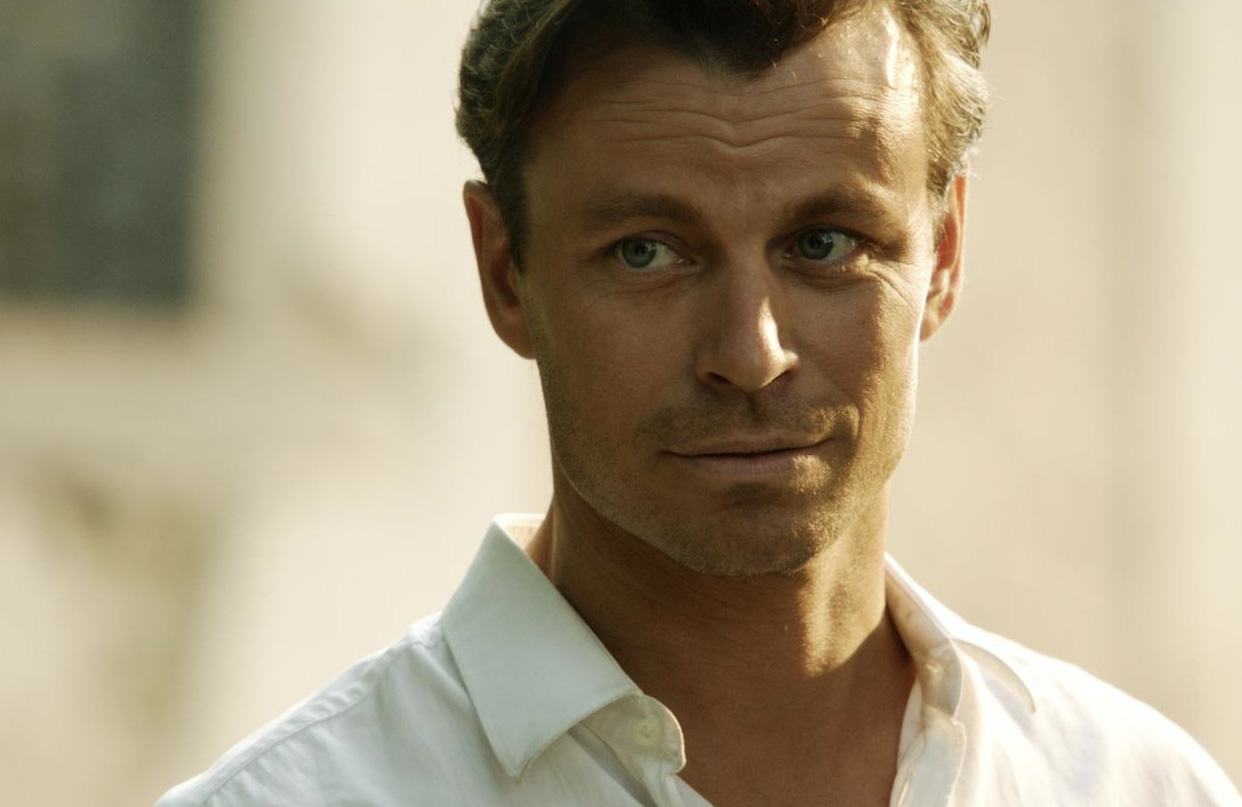 Director: Peter Franzén
Director: Peter Franzén
Script: Peter Franzén
Producers: Markus Selin, Jukka Helle
Cinematography: Hena Bolmberg
Shooting schedule: August 2012, January 2013
Distribution in Finland: Oy Nordisk Film AB
Budget: 1 490 000,00 €
Total support of the Finnish Film Foundation: 630 000 EUR
Production company: Solar Films Inc (www.solarfilms.com)
THE ONLY ONES (NE AINOAT OIKEAT)
The Only Ones is a romantic comedy about a woman who finally finds her "Only One", but then the man mysteriously disappears. Her next great love appears, but happens to also be the Prime Minister of Finland.
Director: Saara Cantell
Script: Outi Keskevaari
Producer: Jarkko Hentula
Shooting schedule: 09-10/2012 and 12/2012
Premiere: 25.12.2013
Distribution in Finland: Oy Nordisk Film AB
Financing TV company: MTV 3
Budget: 1 490 000,00 €
Total support of the Finnish Film Foundation: 700 000,00 €
Production company: Yellow Film & TV (www.yellowfilm.fi)
CONVERSATIONS BETWEEN MEN (MIESTEN VÄLISIÄ KESKUSTELUJA)
After eight successful satiric novels about Finnish politicians and cultural life Kari Mairisaari quit writing his ninth novel about the True Finns party members. Instead he starts writing a book about a bus mechanic. Not just about an average handyman, either. Vlatkosta, a 36-year-old Croat from Espoo, who is one day picked up to answer to war crimes charges.
Mairisaari has been following a Rwanda genocide trial at Porvoo city court and he's concerned about the questions, "Doesn't 15 years deacent life pay anything back?", " What does a young man feel after taking another person's life?"
Writing a novel is a serious challenge to Mairisaari. Could he walk the path where he has to relearn how to navigate through and to put at risk all that he has so far achieved? Does he have courage to create art that has a real meaning - for himself and for the reader?
Director: Jarmo Lampela
Shooting schedule: 10.3.2010-3.3.2011
Premiere: Autumn 2012
Distribution in Finland: Pirkanmaa Film Centre
Total support of the Finnish Film Foundation: 25 900,00 €
Production company: Vegetarian Films
PIONEER
The country gains confidence as it fights to secure its riches. Professional diver Peder is obsessed about reaching the bottom of the Norwegian Sea. Along with his brother Knut, he has the discipline, strength and courage necessary for the world's most dangerous job. A test dive to below 500 meters is compared to Norway's moon landing, and is meant to convince sceptics that laying a pipeline to the mainland is possible. For Peder, the question isn't whether it's feasible, but who'll take part. Then a tragic accident changes everything, and sends Peder on a journey, where he gradually loses sight of who's pulling which strings.
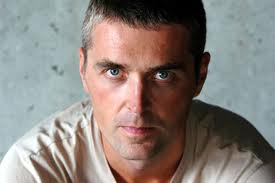 Director: Erik Skjoldbjærg
Director: Erik Skjoldbjærg
Script: Hans Gunnarsson, Cathinka Nicolaysen, Kathrine Valen Zeiner
Shooting schedule: 1.9.-15.12.2012
Premiere: 10/2013
Distribution in Finland: Oy Nordisk Film AB
Financing TV companies: NRK, SVT, ZDF
World sales: TrustNordisk
Budget: 5 555 559,00 €
Total support of the Finnish Film Foundation: 150 000,00 €
Production company: Friland Produksjon AS (Norway)
Co-production company: Matila Röhr Nordisk Oy (Finland)
DETECTIVE OFFICE LASSEMAJA - THE SEVEN WONDERS (LASSEMAJAS DETEKTIVBYRÅ - DE SJU UNDERVERKEN)
Lasse and Maija have decided to take some time off from their detective duties and go on a holiday. Nevertheless they end up in the middle of strange events. The lady Lilly Sparvén arrives in Valleby and has her seven diamonds with her. After many incidents Lasse and Maija are accused for beeing responsible of the diamond's disappearance. Now the holiday has to wait, as Lasse and Maija have to find who the real diamond thief is.
Director: Valter Söderlund
Script: Peter Arrhenius
Shooting schedule: September-October 2012
Premiere: Autumn 2013
Distribution in Finland: FS Film Oy
Financing TV company: SVT, MTV3
Budget: 1 387 000,00 €
Total support of the Finnish Film Foundation: 100 000,00 €
Production company: AB Svensk Filmindustri (Sweden)
Co-production company: Kinoproduction Oy (Finland)
KEKKONEN
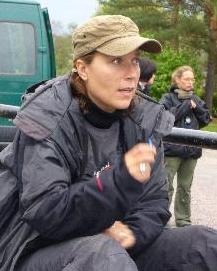 Urho Kaleva Kekkonen, the long-time president of the Republic of Finland, is scheduled to visit Alli's Bar on his way to northern Finland. He is blindly worshiped and the nearer the visit draws, the more envy, competition and dirty tricks we see in a small town.
Urho Kaleva Kekkonen, the long-time president of the Republic of Finland, is scheduled to visit Alli's Bar on his way to northern Finland. He is blindly worshiped and the nearer the visit draws, the more envy, competition and dirty tricks we see in a small town.
Director: Marja Pyykkö
Script: Elias Koskimies (based on a novel by Pia Pesonen)
Shooting schedule: August-September 2012
Premiere: Autumn 2013
Distribution in Finland: Oy Nordisk Film Ab
Total support of the Finnish Film Foundation: 675 000,00 €
Production company: Solar Films Inc.
Report after The Finnish Film Foundation (www.ses.fi).
Lithuania
MARKET ANALYSIS 2020
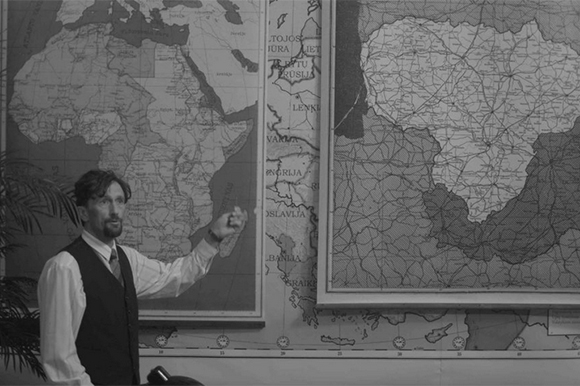 VILNIUS: The Coronavirus pandemic was challenging for the Lithuanian film industry as limitations were imposed upon all culture and film events in the whole country.
VILNIUS: The Coronavirus pandemic was challenging for the Lithuanian film industry as limitations were imposed upon all culture and film events in the whole country.
Still, Lithuanian films of all kinds (feature, documentary, animated and short films) had their world premieres at internationally acclaimed festivals, including Cannes, Karlovy Vary, Leipzig, Venice, San Sebastian, Warsaw, DOC NYC, Tallinn, with the support from the Lithuanian Film Centre.
Total production expenses in Lithuania were 37,911,134 EUR, making 2020 the most profitable year for the tax incentive scheme since its launch. Lithuania saw the infection rate increase over October and November, but film production didn't come to a standstill and international projects arrived from Finland, Norway, Sweden, the UK and France starting August 2020. They include Netfix’s crime drama series Clark, and the Nordic Entertainment Group (NENT) series Max Anger.
It was a successful year for Karolis Kaupinis's debut feature Nova Lituania, which triumphed at the Lithuanian Film Awards Silver Crane with six awards. The film was also chosen as Lithuania‘s entry for an Academy Award nomination in the Best International Feature Film category.
In 2020 the Lithuanian Film Centre appointed a new director, Laimonas Ubavičius.
PRODUCTION
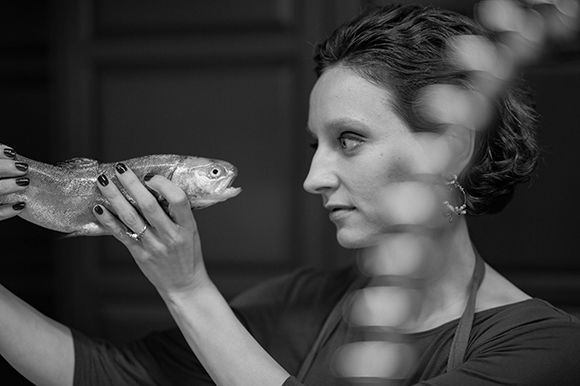 Ernestas Jankauskas shot his new feature film I Am Fine, Thanks / Man viskas gerai, produced by Dansu, in 2020.
Ernestas Jankauskas shot his new feature film I Am Fine, Thanks / Man viskas gerai, produced by Dansu, in 2020.
Fralita Films produced two films simultaneously - A Butterfly‘s Heart / Drugelio širdis directed by Inesa Kurklietyte and Family / Šeima directed by Austėja Urbaitė.
Kristijonas Vildžiūnas finished his fifth feature film Songs For a Fox / Dainos lapei, which was produced by Lithuania's Studio Uljana Kim in coproduction with Latvian Locomotive Productions and Estonian Eesti Joonisfilm.
Andrius Blaževičius shot his sophomore feature Runner / Bėgikė, produced by Lithuania’s M-films.
Ukrainian director Sergei Loznitsa's new film was also in production in 2020. The archive documentary project The Natural History of Destruction / Natūrali naikinimo istorija is produced by Germany‘s LOOKS Filmproduktionen GmbH in coproduction with Lithuania‘s Studio Uljana Kim and Atoms & Void from the Netherlands.
A total of 25 new films of various lengths and genres were finished in 2020, including 11 feature films, 13 documentaries and one animated film.
The list of international productions which used the increased 30% tax incentive scheme in 2020 includes: the 4th season of the Netflix series Stranger Things, created by the Duffer Brothers and serviced by Virtus Mediae; the Nordic Entertainment Group (NENT) series Max Anger - With One Eye Open / Neprarask budrumo, made in coproduction with UK-based Twelve Town, directed by Lisa Farzaneh and Jesper W. Nielsen and serviced by Paprika Filmai; the 2nd season of the Swedish crime drama The Truth Will Come Out / Tiesa vis tiek išaiškės directed by Hans Jörnlind and Aron Levander, produced by Nordic Entertainment Group (NENT Group), coproduced by Discovery Networks Sweden and serviced by Ahil; the sci-fi Skylines / Horizontai directed by Liam O'Donnell and produced by M45 Productions, Hydraulx, Gifflar Films Limited Lipsync Productions, Fasten Films, and serviced by Cobaltas; the Swedish six-part Netflix series Clark directed by Jonas Åkerlund and serviced by Dansu; the war film The Forgotten Battle / Pamirštas mūšis directed by Matthijs van Heijningen Jr., produced by Levitate Film and Caviar Films, and serviced by Artbox, the Finnish comedy Potato / Bulvė directed by Joona Tena, produced by Yellow Film & TV and serviced by Filmai LT; and the French film Kompromat directed by Jérôme Salle, produced by Super 8 Production, SND Groupe M6 and serviced by Virtus Mediae.
In 2020 foreign productions got incentives totalling 8,059,073 EUR.
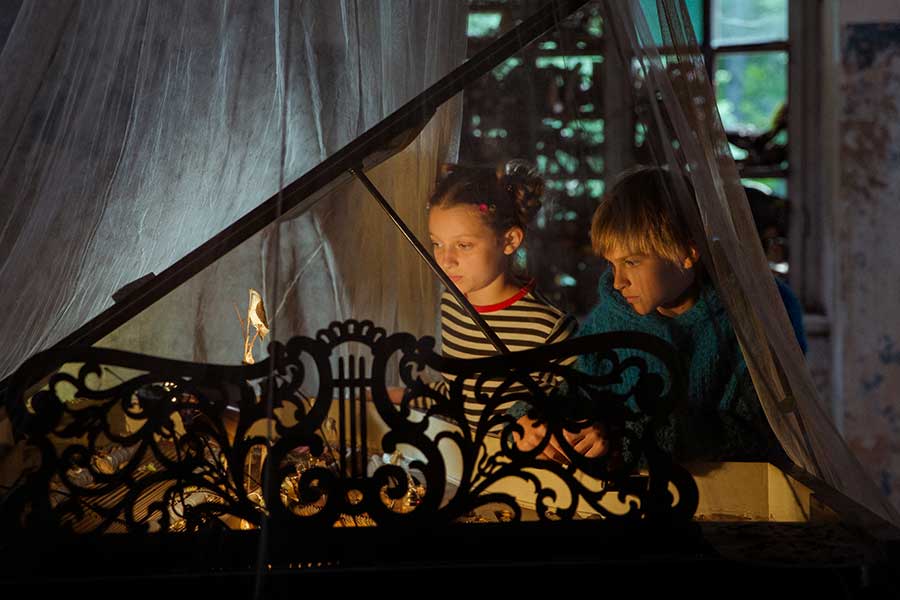 COVID GOVERNMENT SUPPORT
COVID GOVERNMENT SUPPORT
In an attempt to compensate the issues created by the COVID-19 pandemic, the film sector was provided with 6.2 m EUR funding by the Lithuanian Film Centre, which made Lithuania the only Baltic country to receive such a multifaceted support for the film sector.
Additionally, 475,080 EUR went for supporting 28 film projects in production, while 2,717,850 EUR were distributed to 63 new film and TV projects. After an evaluation of film events and festivals set to take place in 2020, further 88,270 EUR were provided to cover the expenses of 21 such events.
Part of the additional funding was dedicated to individual creators for writing and developing new screenplays, preparing publications and research on cinema works. A total of 118,800 EUR were granted to 48 authors.
In an attempt to reduce the losses caused by the COVID-19 pandemic to cinemas and film distributors, one-off grants totalling 2.8 m EUR were also issued. The support reached 18 cinemas, which received 2.24 m EUR, while 12 film distribution companies received 560,000 EUR.
The Lithuanian Film Centre has also initiated the inclusion of film producers and film distributors in the list of companies compiled by the STI (State Tax Inspectorate Under the Ministry of Finance of the Republic of Lithuania). The listed companies are released from interest on arrears and tax recovery, and will be able to pay the taxes at the end of the state of emergency or to create a tax loan agreement.
DISTRIBUTION
A total of 272 films were screened in Lithuanian cinemas in 2020, compared to 383 in 2019.
A total of 13 new Lithuanian films were released in 2020, including Karolis Kaupinis's debut feature Nova Lituania, produced by M-films; Romas Zabarauskas gay romantic drama The Lawyer / Advokatas, produced by Naratyvas, and Lina Lužytė’s The Castle / Pilis, produced by Artbox in coproduction with Irish Samson Films.
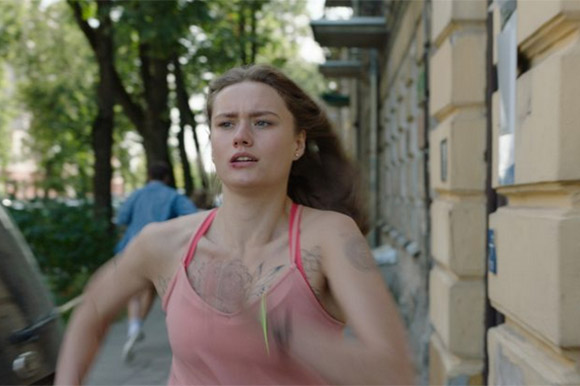 The year 2020 was very good for Lithuanian films in festivals.
The year 2020 was very good for Lithuanian films in festivals.
The Flood Won't Come / Tvano nebus directed by Marat Sargsyan and produced by Tremora, competed in the Film Critics’ Week at the Venice FF, while the short film Places / Miegamasis rajonas directed by Vytautas Katkus and produced by Afterschool was selected for the short film competition of the same festival.
Sharunas Bartas' In the Dusk / Sutemose was selected for the Official Selection of the 73rd Cannes Film Festival, but it was actually screened at the San Sebastian FF, which took 17 titles from the Cannes' selection. The film was produced by Lithuania‘s Studio Kinema in coproduction with France‘s Kino Elektron, Serbia‘s Biberche Productions, Latvia‘s Mistrus Media, Sirena Film from the Czech Republic and Portugal‘s Terratreme Filmes. In the Dusk was also selected for the Baltic Competition of the 24th Black Nights Film Festival (PÖFF).
The Spanish/Icelandic/Lithuanian coproduction Lobster Soup / Omarų sriuba directed by Pepe Andreu and Rafa Molé, and produced by Suica Films in coproduction with Rec Grabaketa Estudioa, Axfilms, and Studio Nominum, also had its world premiere at the San Sebastian FF.
A thematic retrospective organised within the San Sebastian FF, Eastern Promises. Portrait of Eastern Europe in 50 films, featured two Lithuanian films - Šarūnas Bartas’ Eastern Drift / Eurazijos aborigenas (2010), produced by Studio Kinema, and Kristina Buožytė‘s drama Vanishing Waves / Aurora (2013), produced by Tremora.
Motherland by Tomas Vengris won the Audience Award of the 2020 edition of ArteKino. It was produced by Lithuania's Studio Uljana Kim in coproduction with Latvia's Locomotive Productions, Germany's Heimat Hafen Films, and Greece's Faliro House.
The Camel by Laurynas Bareiša (2016), After Rave by Kamilė Milašiūtė (2014) and Youngblood by Marija Kavtaradzė (2013) were selected for the student film programme of the same festival, while the Lithuanian actress Aistė Diržiūtė was invited to the New Directors competition jury.
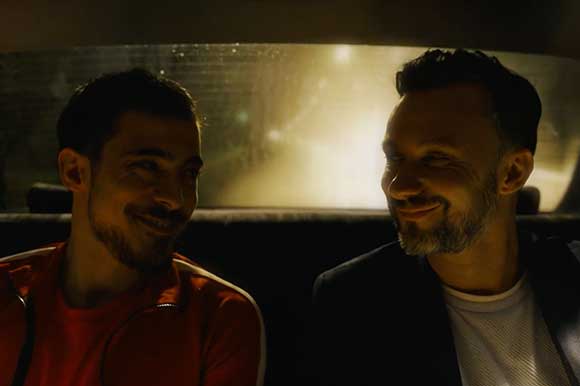 Laurynas Bareiša‘s Dummy / Atkūrimas, produced by Afterschool, became the first Lithuanian film that had its world premiere in the Berlinale Shorts programme.
Laurynas Bareiša‘s Dummy / Atkūrimas, produced by Afterschool, became the first Lithuanian film that had its world premiere in the Berlinale Shorts programme.
Giedrė Žickytė's documentary The Jump / Šuolis, produced by Moonmakers and coproduced by Latvia‘s VFS Films, premiered at the Warsaw Film Festival, where it won the Best Documentary award.
Three Lithuanian projects participated in the Eastern Promises Industry Days of the virtual edition of the Karlovy Vary IFF. The Lithuanian/Norwegian project Burial directed by Emilija Škarnulyte and produced by Just a Moment, competed for the Eurimages Lab Project Award, while I Am Fine, Thanks / Man viskas gerai by Ernestas Jankauskas and Runner / Bėgikė by Andrius Blaževičius participated in the First Cut+ programme.
Roman’s Childhood / Romano vaikystė directed and produced by Linas Mikuta had its world premiere at the 63rd DOK Leipzig, where it competed for the Golden Dove.
After winning Best Documentary at the Warsaw FF, Giedrė Žickytė's The Jump / Šuolis, produced by Moonmakers and coproduced by Latvia‘s VFS Films and France‘s Faites un voeu, became the first Lithuanian film invited to the official selection of the Roma FF. The film had its North American premiere at the DOC NYC, where it won the Audience Award. The Jump was also selected for the Baltic Film Competition at the Black Nights Film Festival.
Lithuania featured as guest at the International Film Festival for Young Audiences Filem‘On in Brussels, where Lina Lužytė’s The Castle competed for the ECFA Feature Award and the 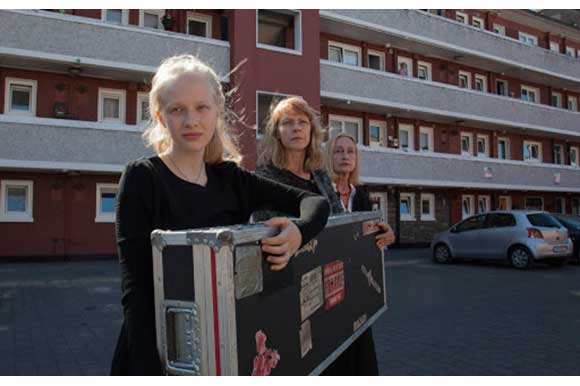 Filem’On Teen Screen Award. Another six animated short films were in the programme: Ilja Bereznickas’s The Goat Luck, Bad Luck / Ne ožkoje laimė (2017) produced by Vilaminos Film Studio, Gediminas Šiaulys’s Running Lights / Kaukai (2014) produced by PetPunk, Rasa Joni’s The Tail / Uodega (2006) produced by Rasa Joni Art, Ignas Meilūnas’s Mr Night Has a Day Off / Pono Nakties laisvadienis (2016) produced by Ignas Meilūnas, Mainardas Valkevičius’s Look / Oo. (2017) produced by MeinArt, and Darius Jaruševičius’s Stop. The Kiss (2009) produced by the Vilnius Academy of Fine Arts.
Filem’On Teen Screen Award. Another six animated short films were in the programme: Ilja Bereznickas’s The Goat Luck, Bad Luck / Ne ožkoje laimė (2017) produced by Vilaminos Film Studio, Gediminas Šiaulys’s Running Lights / Kaukai (2014) produced by PetPunk, Rasa Joni’s The Tail / Uodega (2006) produced by Rasa Joni Art, Ignas Meilūnas’s Mr Night Has a Day Off / Pono Nakties laisvadienis (2016) produced by Ignas Meilūnas, Mainardas Valkevičius’s Look / Oo. (2017) produced by MeinArt, and Darius Jaruševičius’s Stop. The Kiss (2009) produced by the Vilnius Academy of Fine Arts.
The restored Lithuanian classic The Girl and the Echo / Paskutinė atostogų diena by Arūnas Žebriūnas (1964, produced by the Lithuanian Film Studio) ran across French cinemas in 2020. The story of a girl and dreamy summer holidays screened in 16 cinemas in Paris, Lyon, Bordeaux, Marseille, Grenoble, Toulouse and other cities. The Lithuanian Film Centre has extended the cooperation with French ED Distribution for the distribution of the film in all the French-speaking territories in Europe. In 2018, the company successfully presented another Žebriūnas’ film, The Beauty / Gražuolė (1969, produced by the Lithuanian Film Studio), which was released on DVD with French subtitles.
Five Lithuanian cinema classics were presented on the newly launched platform Heritage Online by the Locarno FF in 2020: March! March! Tra-ta-ta / Marš ! Marš! Tra-ta-ta! (1964) directed by Raimondas Vabalas and produced by the Lithuanian Film Studio, The Girl and The Echo / Paskutinė atostogų diena (1964) and The Beauty / Gražuolė (1969), both directed by Arūnas Žebriūnas and produced by the Lithuanian Film Studio; Woman and Her Four Men / Moteris ir keturi jos vyrai (1983) directed by Algimantas Puipa and produced by the Lithuanian Film Studio, and I No Longer Remember Your Face / Neprisimenu tavo veido (1988) directed by Raimundas Banionis and produced by the Lithuanian Film Studio.
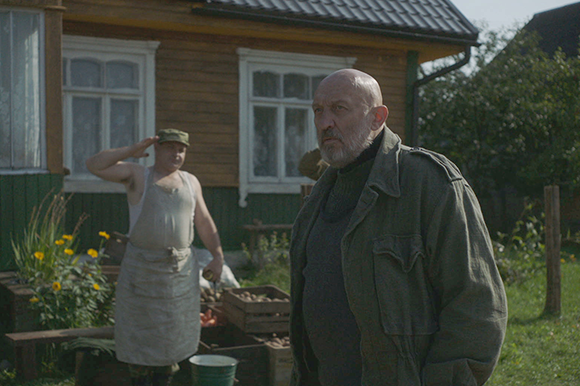 VOD PLATFORMS AND ONLINE DISTRIBUTION
VOD PLATFORMS AND ONLINE DISTRIBUTION
Film festivals and film industry meetings, as well as film industry awards moved to the virtual space and TV screens in 2020, while many Lithuanian film premieres were postponed for 2021.
The Vilnius IFF became one of the first film festivals to switch to a digital format. The decision gave a boost to local VOD platforms, which streamed films 56,000 times. According to the research company Kantar, each screening was most often watched by two people, thus the number of viewers goes up to approximately 112,000. In comparison, the 2019 festival was attended by 126,000 filmgoers.
“Despite these numbers, we lost over half of our target ticket revenue, which is a significant financial blow“, said the executive director of the Vilnius IFF Algirdas Ramaška. A total of 69 percent of the programme, representing 118 films, made it onto streaming sites and on-demand TV.
Together with TV3, the Vilnius IFF launched the Aerocinema experiment, at the first drive-in cinema held at the Vilnius Airport, in the spring of 2020. The screenings, which used the largest outdoor LED screen in the Baltics, soon became a sensation in Lithuania and around the world, with over 400 stories in the media. Aerocinema later traveled to 20 Lithuanian cities, and 118 drive-in screenings were attended by approximately 13,839 cars in over three months.
The European Film Forum Scanorama opened in cinemas in Vilnius on 4 November 2020 and moved online to the Scanorama cinema platform three days later.
The number of Netflix users grew in Lithuania in the first half of 2020. According to a research conducted by the Lithuanian Radio and Television Commission (LRTK), Netflix ended the first half of 2020 with approximately 40,000 users in Lithuania, which was double than 12 months earlier. There were 7,000 Netflix subscribers in 2018.
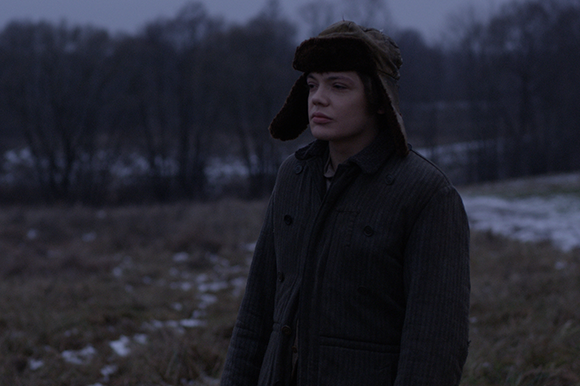 EXHIBITION AND BOX OFFICE
EXHIBITION AND BOX OFFICE
There are 80 screens in Lithuania, which is still too small a number, according to the Film Centre, in order to provide access to films in smaller cities and given the total number of productions released.
The pan-Scandinavian Forum Cinemas, owner of the largest chain of film theatres in the country (76% of the market share), has six multiplexes with 40 screens, all fully digitalised since 2012. In 2016, Forum Cinemas joined the NCG group, which became a part of the global AMC/Odeon organisation belonging to the Wanda Group since 2017.
The Polish-owned multiplex Multikino, which opened in Vilnius in 2010, has seven screens with 1,673 seats. Baltic Multiplex Ventures, which is the owner of the Cinamon multiplex in Kaunas, invested 1.6 m EUR in its five screening rooms with over 1,000 seats.
Kino Pasaka, which was founded in 2009 as an art house film theatre in Vilnius, is still the only private art house cinema in Lithuania. In September 2020, the Pasaka cinema was opened in the new Paupis district of Vilnius.
Cinemas in Lithuania were closed from 16 March to 5 June 2020 due do the Coronavirus pandemic. They closed again starting 7 November 2020 until 31 January 2021. A few attempts to organise alternative film screenings did not replace the usual activities or the economic model of the sector.
Furthermore, local cinema operators are also dependent on the global market changes during the economic crisis. The film premieres called off in the USA and Europe greatly influenced the planning of cinemas’ activities.
Based on the data provided by cinema operators, the market experienced losses greater than 14 m EUR during the year 2020. Part of the losses was compensated by Lithuanian and European Union institutions, but the grants couldn’t offset all the losses.
Cinema attendance decreased between two and six times in different cinemas in Lithuania.
According to official statistics, total admissions in 2020 were 1.5 m and the total gross 8,473,000 m EUR, compared to 4.1 m total admissions and 22,495,000 EUR total gross in 2019.
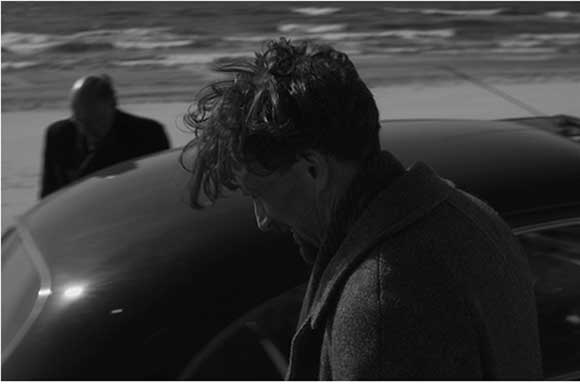 The average ticket price in 2020 was 5.45 EUR.
The average ticket price in 2020 was 5.45 EUR.
The most profitable Lithuanian film at the box office in 2020 was the romantic comedy The Perfect Date / Tobulas pasimatymas directed by Robertas Razma, produced and distributed by Nord Play. The film was released on 3 January 2020 and had more than 146,815 admissions and 874,111 EUR gross.
Imported Groom / Importinis jaunikis directed by Simonas Aškelavičius, produced and released by Acme Film, had 115,283 admissions and 698,797 EUR gross since its premiere on 31 January 2020.
GRANTS AND NEW LEGISLATION
The Lithuanian audiovisual industry relies on funds from the Lithuanian Film Centre, private funds, coproducing with foreign companies, and pan-European film support initiatives such as the MEDIA Programme and Eurimages.
In 2020 the Lithuanian Film Centre appointed a new director, Laimonas Ubavičius. He was selected from the two candidates who received the highest scores in a competition organised by the Civil Service Department under the Ministry of the Interior of the Republic of Lithuania. Starting November 2020 Laimonas Ubavičius replaced Rolandas Kvietkauskas, who had managed the Lithuanian Film Centre since its launch in 2012.
The Lithuanian Film Centre was set up after an extensive lobbying by the Independent Producers Association of Lithuania and the Lithuanian Filmmakers Union. It has had a huge impact on the local industry, which previously lacked a central body to represent it.
The Lithuanian Film Centre primarily finances film development, production, promotion and distribution in Lithuania.
In 2020 the Lithuanian Film Centre became a patron of the European Women’s Audiovisual Network (EWA). With this new partnership, the LFC supports both the presence of its local members in the network and the initiatives organised by the EWA in Lithuania.
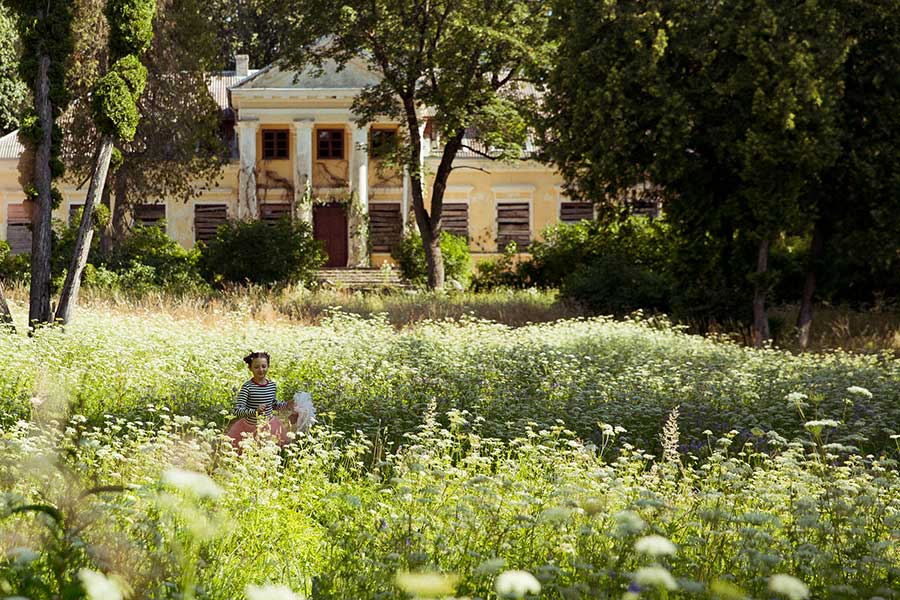 In 2018 the Lithuanian parliament approved a boost to the country’s film production tax incentive, increasing it from 20% to 30%. The new level took effect from 1 January 2019 and the legislation was renewed for a next five-year period.
In 2018 the Lithuanian parliament approved a boost to the country’s film production tax incentive, increasing it from 20% to 30%. The new level took effect from 1 January 2019 and the legislation was renewed for a next five-year period.
The updated tax incentive is available for fiction films, TV films, documentaries and animated films. At least 80% of eligible film production costs must be incurred in Lithuania and the total amount of eligible spend in Lithuania has to be no less than 43,000 EUR. The incentives scheme is administered by the Lithuanian Film Centre.
In 2020 the Lithuanian Film Centre issued 154 Investment Certificates, representing a total amount of 11,288,347 EUR financial aid for filmmaking in Lithuania. A total of 58 films used the scheme: 12 foreign films, nine coproductions and 37 domestic films.
In 2019 the Lithuanian Film Centre issued 98 Investment Certificates, representing a total amount of 6,834,286 EUR financial aid for filmmaking in Lithuania, and 36 films used the scheme: eight foreign films, eight coproductions and 20 domestic films.
The total production expenses in Lithuania were 37,911,134 EUR in 2020, compared to 22,909,399 EUR in 2019, making 2020 the most profitable year for the tax incentive scheme since its launch in 2014.
In 2020, foreign productions got incentives totalling 8,059,073 EUR.
The Vilnius Film Office was established at the end of 2011. A public non-profit entity, the Kaunas Film Office was established in 2012 as a result of a joint effort between the Kaunas municipality and the Kaunas Cinema Studio. The Vilnius Film Office and the Kaunas Film Office are members of the European Film Commissions Network.
The seaport Klaipėda, located on the Baltic Sea coast in Western Lithuania, as well its region, offer a wide range of filming locations. More at: www.klaipeda-locations.com.
TV
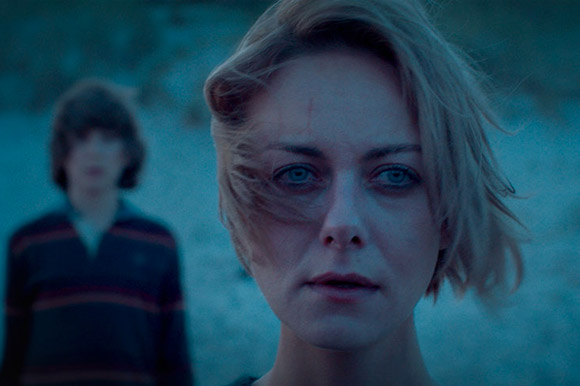 Lithuania’s public broadcaster, the Lithuanian National Radio and Television (LRT), operates three national television channels, three radio channels and an internet portal. It also provides satellite and live internet broadcasts, radio and television podcasts.
Lithuania’s public broadcaster, the Lithuanian National Radio and Television (LRT), operates three national television channels, three radio channels and an internet portal. It also provides satellite and live internet broadcasts, radio and television podcasts.
The Act amending the Law on the Lithuanian National Radio and Television came into force on 1 January 2015. This act bans commercial advertising on all LRT radio and TV channels, but provides more sustainable funding from the state budget. The assigned funding is based on the state budget revenues from the income tax and the excise revenues received in two previous years. Its operations are overseen by the LRT Council. LRT joined the European Broadcasting Union (EBU) in 1993. LRT provides assistance to foreign broadcasting companies covering events in Lithuania.
TV3 is a television channel owned by Modern Times Group (MTG, Sweden) and targeted at Lithuanian-speaking audience. It was launched in April 1993 as Tele-3, before becoming TV3 in June 1997. Now TV3 is the biggest commercial TV channel in Lithuania and brings entertainment for the whole family, offering locally produced shows, well-known international formats and the most popular sport events.
The TV6 channel was launched in 2002. It focuses on entertainment and high-profile sports events – the UEFA Champions league, comedy, horror, action films and exclusive content shows. TV6 is a Lithuanian terrestrial, satellite and cable television channel owned by the Nordic television company Viasat.
The TV8 channel, launched in 2011, is dedicated to women who want to enjoy their leisure time. It broadcasts cooking and lifestyle shows, fashion and female talk shows, romance films and series, as well as positive animation for children.
LNK TV, also known as Laisvas ir Nepriklausomas Kanalas (Free and Independent Channel), is one of the major commercial TV channels in Lithuania. It was founded in 1995 as part of MG 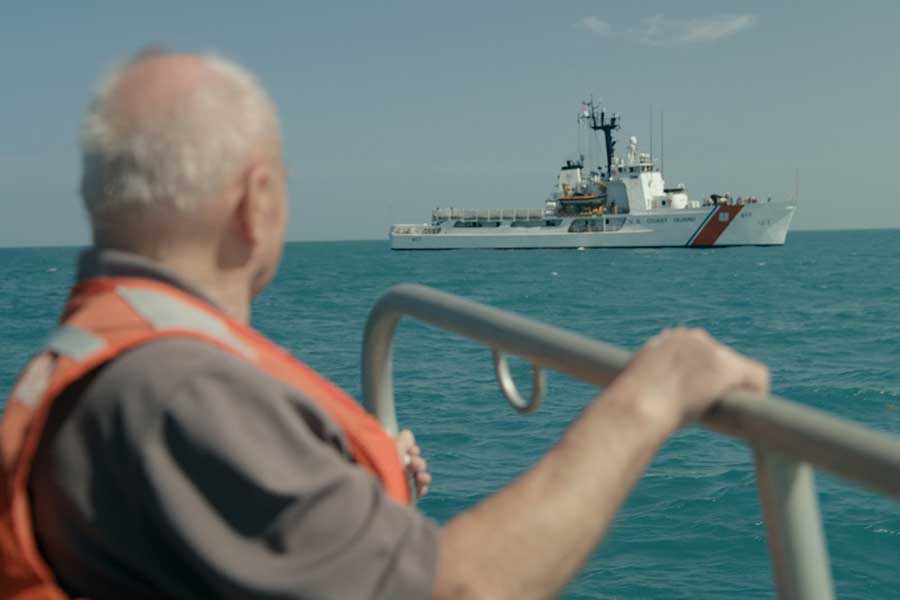 Baltic Media. It has four sister channels: TV1, Info TV, Liuks! and BTV.
Baltic Media. It has four sister channels: TV1, Info TV, Liuks! and BTV.
Lietuvos rytas TV is a Lithuanian entertainment channel founded in 2008 and airing approximately 55% international programmes.
In 2020 TV3 aired the 13th season of the most popular Lithuanian TV series Women Lie Better / Moterys meluoja geriau directed by Mykolas Vildžiūnas and Andrius Žiurauskas, and produced by Videometra. Women Lie Better is the most popular Lithuanian drama of all time and it is based on a novel by Daiva Vaitkevičiūtė. The series follows four young women and their love interests.
Also in 2020 LNK TV aired the third season of the criminal drama series Serious Deal / Rimti reikalai directed by Džiugas Siaurusaitis and produced by Urbs TV.
CONTACTS:
LITHUANIAN FILM CENTRE
Zigmanto Sierakausko g. 15, LT-03105 Vilnius
Phone: +370 5 213 0547
Director: Laimonas Ubavičius
This email address is being protected from spambots. You need JavaScript enabled to view it.
VILNIUS FILM OFFICE
Director: Jūratė Pazikaitė
Konstitucijos pr. 3-313
Vilnius, LT-09601
Phone: 85 211 2620
Mobile:. 8 614 04 696
This email address is being protected from spambots. You need JavaScript enabled to view it.
This email address is being protected from spambots. You need JavaScript enabled to view it.
www.filmvilnius.com
KAUNAS FILM OFFICE
Darius Baltušis
Laisves av. 54, Kaunas, 44246
Phone: +37069837732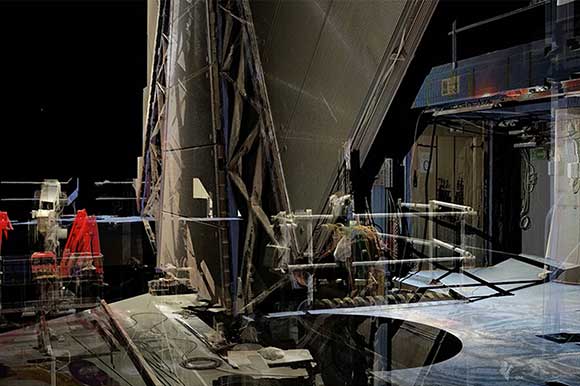
This email address is being protected from spambots. You need JavaScript enabled to view it.
www.kaunasfilmoffice.eu
KLAIPĖDA LOCATIONS
Anelija Juškevičiūtė
Phone: +370 687 16001
This email address is being protected from spambots. You need JavaScript enabled to view it.
Report by Auksė Kancerevičiūtė (2021)
Source: Lithuanian Film Centre
Georgia
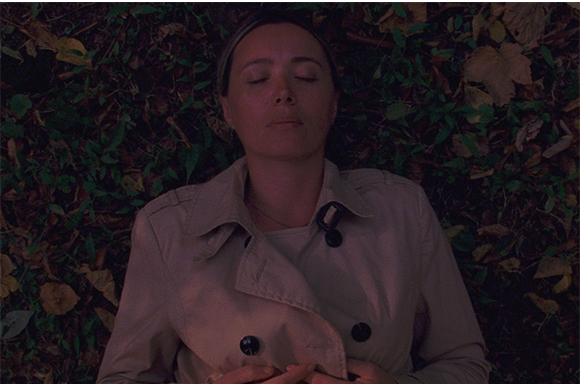 MARKET ANALYSIS 2020
MARKET ANALYSIS 2020
TBILISI: Georgia was strongly affected by the Coronavirus pandemic, which shut down cinemas and film production for most of 2020, but Georgian films received new awards at international festivals. Georgian cinema days and retrospectives were held in Brussels, Tallinn, Split and Lisbon, and Georgia was the Focus Country at the 2020 Trento Film Festival.
Hundreds of films made from 1921 to 1991 are to be returned to Georgia under a deal signed with the film archives of the Russian Federation in 2016. The Georgian National Film Center (GNFC) declared 2020 the year of the 1920s cinema. Despite the epidemic situation, eight films from the 1920s brought from the Russian film archives "Gosfilmofond" were restored, in cooperation with the National Archives.
At the same time, work was completed on the book Georgian Cinema of the 1920s, which reflects the work of directors in this significant decade of the development of Georgian cinema.
Dea Kolumbegashvili's Beginning was selected as Georgia’s entry for the 93nd Academy of Motion Picture Arts and Sciences’ award in the best international feature film category in 2020.
Due to the Coronavirus pandemic, no films or TV series were shot in Georgia under the Film in Georgia programme in 2020.
PRODUCTION
Five Georgian feature films were produced and only one of them was finished in 2020, according to the Georgian National Film Center. The domestic film finished in 2020 is Beginning, directed by Dea Kolumbegashvili and produced by First Picture / O.F.A with support from the Georgian National Film Center.
Six short films were shot in 2020 and all of them were already completed at the beginning of 2021: Hotel Mirage directed by Guram Bakradze and produced by Panik Films, Crossing directed by Sandro Naveriani and produced by Film Asylum, Thunderstruck directed by Giorgi Kobalia and produced by Film Asylum, Black Sea directed by Tinatin Emiridze and produced by Funder Ninuki Koiava, 26 directed by Gvantca Meparishvili and produced by Millimeter Film, and Heatwave directed by Tornike Gogrichiani and produced by Nushi Film. All of them are supported by the Georgian National Film Center.
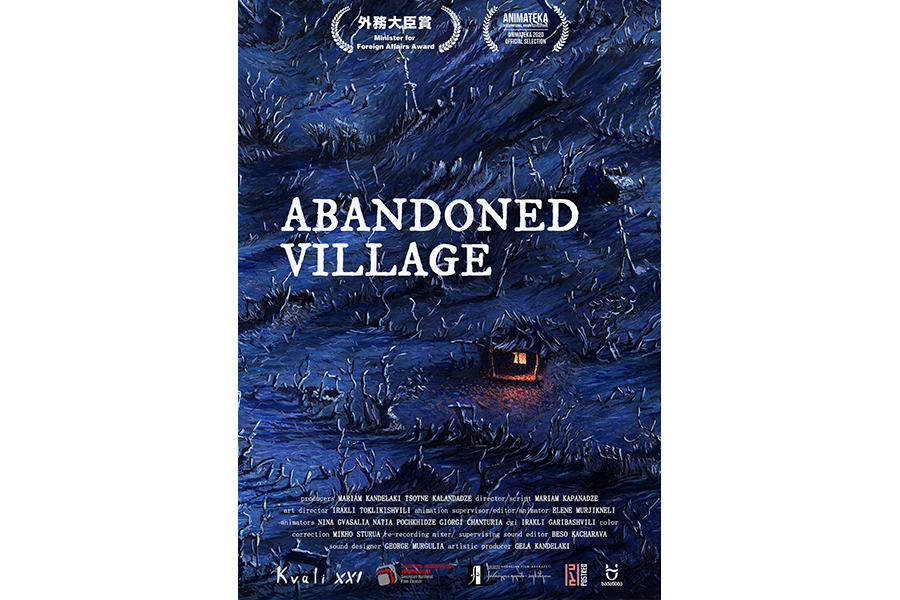 Eight documentaries were completed in 2020: MSHT-15 directed by Vakhtang Kuntsev-Gabashvili and produced by Akrobat Studio (Tbilisi), Aux-Trois-Mailletz directed by Tamar Bartaia and produced by Studio 99 Ltd, Lana, Anuka and the Whole Football Team directed by Ketevan Kapanadze and produced by Microcosmos, Taming the Garden directed by Salome Jashi and produced by Mira Film Basel in coproduction with Corso Film and Sakdoc Film (which was selected for the Sundance IFF 2021), Stories from Family Album directed by Anna Dziapshipa and produced by Sakdoc Film, Glory to the Queen directed by Tatia Skhirtladze and Anna Khazaradze, and produced by 1991 Productions, and Artisan or Artist directed by Giorgi Tskhvediani and produced by Funder Nikoloz Abramashvili. All of them are supported by the Georgian National Film Center.
Eight documentaries were completed in 2020: MSHT-15 directed by Vakhtang Kuntsev-Gabashvili and produced by Akrobat Studio (Tbilisi), Aux-Trois-Mailletz directed by Tamar Bartaia and produced by Studio 99 Ltd, Lana, Anuka and the Whole Football Team directed by Ketevan Kapanadze and produced by Microcosmos, Taming the Garden directed by Salome Jashi and produced by Mira Film Basel in coproduction with Corso Film and Sakdoc Film (which was selected for the Sundance IFF 2021), Stories from Family Album directed by Anna Dziapshipa and produced by Sakdoc Film, Glory to the Queen directed by Tatia Skhirtladze and Anna Khazaradze, and produced by 1991 Productions, and Artisan or Artist directed by Giorgi Tskhvediani and produced by Funder Nikoloz Abramashvili. All of them are supported by the Georgian National Film Center.
Three animated films were produced in 2020: Abandoned Village directed by Mariam Kapanadze and produced by "Kvali XXI" and Filmcenter “Georgian Film-Abkhazeti", The Father directed by Archil Kukhianidze and produced by Animation Development Fund, and Raven directed by Alexander Katamashvili and produced by 20 Steps Productions.
Although, due to the Coronavirus pandemic, no films or TV series were shot in Georgia under the Film in Georgia programme in 2020, three filming location scouts from Universal Pictures visited Georgia in September 2020. Their visit was part of the partnership between Enterprise Georgia, USAID’s Economic Security Programme, the Georgian National Film Center, and the Georgian Film Cluster.
"Developing the local creative industry is one of Enterprise Georgia’s top priorities. The success of this sector plays a considerable role in the economic advancement of the country”, said Mikheil Khidureli, Enterprise Georgia CEO.
Enterprise Georgia has been implementing the Film in Georgia programme since 2016. As a consequence, several production companies from Europe, Asia and the USA have already worked in the country.
From 2016 to 2020, 30 project implementation contracts were signed as part of the programme and 22 of them have been completed. The qualified expenses of all the agreements amount to more than 23.5 m EUR / 94 m GEL. It is also important to note that 15,795 employment opportunities were created during the implementation process of the mentioned projects.
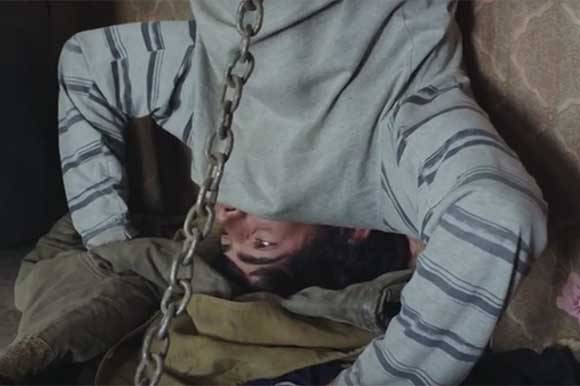 The Film in Georgia team plans to continue active promotion of Georgia abroad, including the participation in major industry events (AFCI, AFM Location Expo, Focus Expo, Winston Baker Film Finance Forum), meetings with major studios, location managers and independent producers, as well as organising tours in order to introduce filming locations and existing relevant infrastructure in Georgia.
The Film in Georgia team plans to continue active promotion of Georgia abroad, including the participation in major industry events (AFCI, AFM Location Expo, Focus Expo, Winston Baker Film Finance Forum), meetings with major studios, location managers and independent producers, as well as organising tours in order to introduce filming locations and existing relevant infrastructure in Georgia.
“The Film in Georgia programme is the main motivator for attracting international projects to Georgia. Our country has all the major advantages in order to be competitive in the world, such as various locations, flexible and simplified processes, lack of licenses for filming, competitive prices, film friendly society and more. However, the fact that the state supports the film industry and offers a 20% cash rebate to companies, makes them more interested”, Tatia Bidzinashvili, Head of the Film in Georgia Cash Rebate Programme, told FNE.
DISTRIBUTION
Giga Liklikadze's debut feature Pig was released in Georgian cinemas on 16 January 2020. Pig is the only Georgian film released in cinemas in 2020. This film, produced by Sarke Studio, had its world premiere at the Cottbus IFF.
In February and June 2020, the Georgian National Film Center presented the Georgian Pavilion at the Berlin IFF and Cannes FF markets, the second of them being held online due to the Coronavirus pandemic.
The Georgian actor Levan Gelbakhiani was among the top ten European Shooting Stars at the 70th Berlin Film Festival. He was selected for his lead role in Levan Akin's And Then We Danced, produced by French Quarter Film and Takes Film, in coproduction with AMA Productions, RMV Film, Inland Film, in cooperation with Sveriges Television.
The 18th DocLisboa International Documentary FF, which was held online in 2020, screened a large retrospective: "An Exciting Retrospective of Georgian Cinema" with 40 films from different periods of time.
Georgian films received several awards in 2020.
Dea Kulumbegashvili's feature film Beginning received The Golden Shell at the San Sebastian FF, where Kulumbegashvili also received The Silver Shell for best director and together with Rati Oneli the jury prize for best screenplay. Ia Sukhitashvili was also awarded best actress. Beginning has also been selected for the 73rd edition of the Cannes Film Festival in the Official Selection of Cannes International Film Festival.
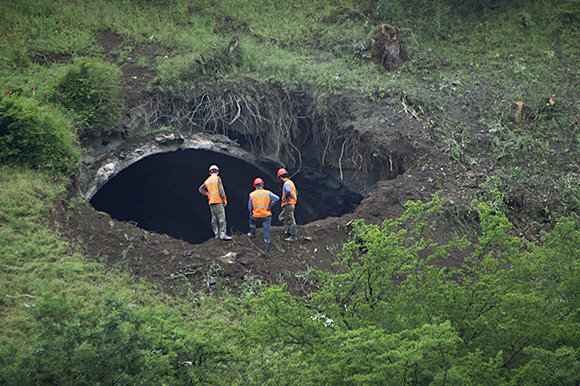 Nino Orjonikidze and Vano Arsenishvili's documentary Tunnel had its world premiere at the IDFA Amsterdam and it was also selected for the International Human Rights Documentary FF in Prague. The film won Best Film at the Underhill Fest in Podgorica in June 2020, as well as the main prize at the Trento IFF and best long documentary prize at the DokuBaku 2020 IFF.
Nino Orjonikidze and Vano Arsenishvili's documentary Tunnel had its world premiere at the IDFA Amsterdam and it was also selected for the International Human Rights Documentary FF in Prague. The film won Best Film at the Underhill Fest in Podgorica in June 2020, as well as the main prize at the Trento IFF and best long documentary prize at the DokuBaku 2020 IFF.
Abandoned Village directed by Mariam Kapanadze, produced by "Kvali XXI" and Filmcenter “Georgian Film-Abkhazeti", won an award from the Ministry of Foreign Affairs of Japan at the NEW CHITOSE International Animated FF in Hokkaido in November 2020. The European premiere of the film took place at the International Animation Festival "ANIMATEKA" in Ljubljana later in November 2020.
Ekaterine (Keko) Chelidze's long documentary Dead Souls’ Vacation produced by Parachute Films had its online world premiere in The Changing Face of Europe section of the Hot Docs IFF in Toronto.
The BIAFF, organised by the Batumi Art-house ARGANI, which had originally been scheduled for 13-20 September 2020, was postponed for a digital edition 15-25 November 2020. The BIAFF director Giorgi Gogiberidze and manager Zviad Eliziani each were awarded a special prize by the Georgian Film Academy for their contribution to the Georgian Cinema.
The 8th edition of CinéDOC-Tbilisi, which started on 30 August 2020, wrapped with the announcement of the winning films on 30 September 2020. The festival is organised by the Noosfera Foundation.
Zako by Susana Khachatryan and The Living Book by Mindia Arabuli won the Annecy-Tbilisi Animation Pitching Workshop, which took place from 28 September to 2 October 2020.
The workshop for documentary filmmakers ESoDoc was held 26 November - 4 December 2020 with the support of the GNFC. The workshop included lectures, masterclasses, film screenings and discussions, and it is an initiative of ZeLIG School for Documentary, Television and New Media, in Bolzano (Italy). Guardians of Heritage by Keti Machavariani and Aleksandre Kviria was declared the best Georgian project of ESoDoc Impact Strategy Workshop.
The first edition of the Kutaisi International Short Film Festival, organised in partnership with the Georgian National Film Center and the Kutaisi Municipality, was postponed from 3–7 November 2020 to 3-7 May 2021 due to the pandemic situation.
The 21st edition of the Tbilisi International Film Festival ran online from 30 November through 20 December 2020 and combined industry days, masterclasses and film screenings. The first place in the Georgian-Baltic Bridge competition went to Ia directed by Keti 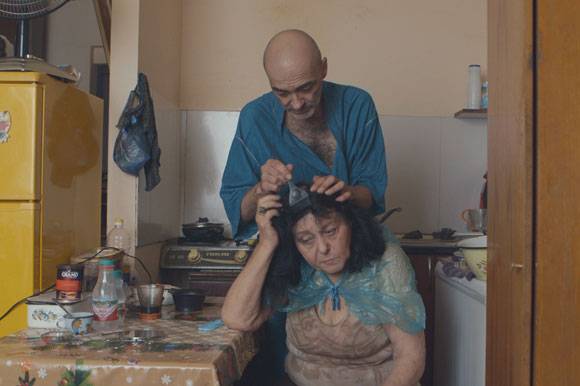 Machavariani and produced by Sunny Films in coproduction with Terra Incognita Films.
Machavariani and produced by Sunny Films in coproduction with Terra Incognita Films.
The Georgian animated film project Igi directed by Natia Nikolashvili and produced by Vladimer Katcharava through 20 Steps Productions, became the winner of the Central and Eastern European Animation Forum, held online from 6 to 8 October 2020.
The debut film project Holy Electricity by Tato Kotetishvili was awarded three prizes – the Camalot / Filmmore Emerging Cinema Award, NFF Script Development Award and HFM Market Potential Award at the Holland Film Meeting. The film is produced by Zango Studio and coproduced by Nushi Film.
The documentary project Smiling Georgia, directed by Luka Beradze and produced by 1991 Productions, was selected to participate among 28 projects in the European Work in Progress Cologne.
COVID GOVERNMENT SUPPORT
No funding or financial support to industry representatives affected by the Coronavirus pandemic was approved by the state in 2020, Gaga Chkheidze, Head of the Georgian National Film Center, told FNE.
A group of producers took the initiative to create production regulations and general recommendations together with various agencies in April 2020. The regulation document discusses the main recommendations to be followed during the film production process, the activities to be carried out on the set, and additional services. FNE spoke to the producers about the crisis and their proposals.
"Considering the nature of the current reality, there are many more practical details that need to be taken into consideration in a systemic form, with legally enforced documents, which will allow for safe, flexible and uninterrupted productions. Considering the recent experiences of working with various state institutions, the working group is hopeful that further measures will be taken to address the needs of the sector. While our non-formal working group remains open to further collaborations, we call for more proactive and systemic action from the government, which concerns not only the film industry, but the creative industry in general ", Nino Jincharadze, Working Group Member and Takes Film Producer, told FNE in September 2020.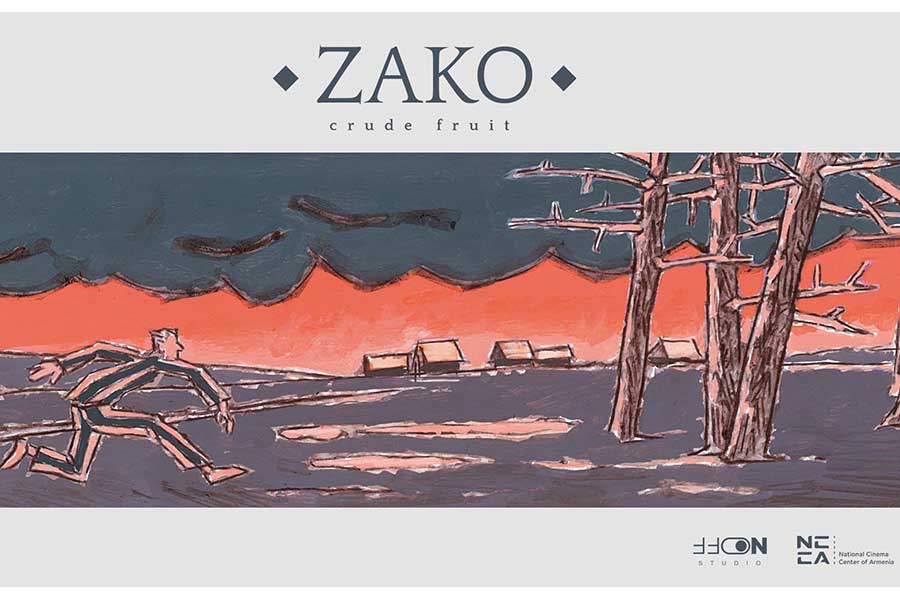
VOD PLATFORMS AND ONLINE DISTRIBUTION
Production studios and the Georgian National Film Center responded to the COVID-19 crisis with the launch of the initiative “Stay Home, Watch Georgian Films!”, under which 27 short and long films were screened online for free starting 25 March 2020. Among them were Georgia's 2019 Academy Award bid Namme directed by Zaza Khalvashi and produced by Georgia’s Batumi Art-House Film Studio in coproduction with Lithuania’s Tremora, the award-winning Moira directed and produced by Levan Tutberidze, I Am Beso directed by Lasha Tskvitinidze and produced by Pansionati, and Listen to the Silence directed by Mariam Chachia and produced by OpyoDoc in coproduction with France’s In the mood.
In November 2020 the GNFC launched an online film club, providing Georgian films as well as production news.
EXHIBITION AND BOX OFFICE
The first Dolby Atmos system cinema in Georgia opened in Tbilisi on 30 November 2017. The six-screen Cavea Galleria Tbilisi with 700 seats is the fifth cinema in the Georgian capital.
There is also one chain of multiplexes, the privately owned Rustaveli/Amirani Movie Theaters consisting of Cinema Amirani LTD (four screening halls, 679 seats) and Cinema Rustaveli LTD (five screening halls, 858 seats) in Tbilisi, and also Cinema Apollo LTD (one screening hall, 154 seats) in Batumi. Cinema Rustaveli LTD closed in July 2018 and its future destiny is unclear.
Rustaveli/Amirani Movie Theaters also runs Film Distribution LTD and Light Bank LTD, two divisions dealing with film production.
The new multiplex Cavea City Mall with 886 seats opened in 2019. CAVEA also runs CAVEA IMAX, with 10 screens including an IMAX screen, and CAVEA MOLI, with five screens. No new cinema opened in 2020.
There are currently six cinemas in Georgia with 35 screens (including one IMAX). All except one screen are digitalised.
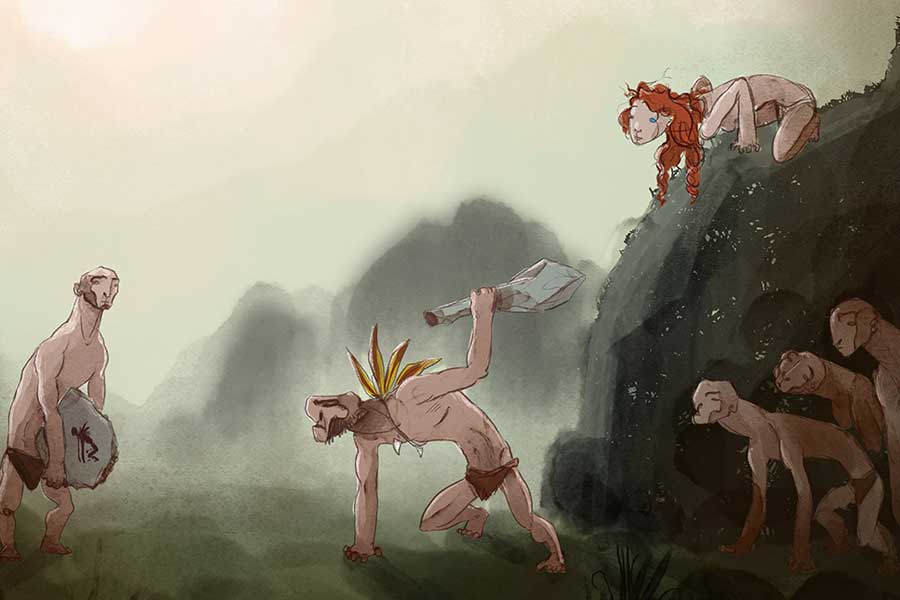 A total of 67 titles were theatrically released in 2020, compared to 163 in 2019.
A total of 67 titles were theatrically released in 2020, compared to 163 in 2019.
The 2020 admissions top ten is topped by Bad Boys For Life with 34,776 admissions, followed by Jumanji (33,559 admissions), Frozen II (25,171 admissions), Spy in Disguise (17,384 admissions), The Gentlemen (13,815 admissions), Sonic (10,932 admissions), Red Shoes and Seven Dwarfs (7,695 admissions), Playing with Fire (6,623 admissions), Star Wars: The Rise of Skywalker (6,595 admissions) and Harley Quin (6,511admissions).
Pig by Giga Liklikadze is the only Georgian film released in cinemas in 2020. It was released by Rustaveli/Amirani Movie Theaters.
Additionally, screenings of Golden Thread directed by Lana Ghoghoberidze and produced by Film Production in coproduction with France's Manuel Cam Studio continued in 2020. Golden Thread premiered on 12 December 2019. It was released by Rustaveli/Amirani Movie Theaters.
"Attendance-wise, the share of Pig and Golden Thread is very small. The films had approximately 2,000 admissions in all", Salome Kuprashvili, Cavea’s Marketing Manager, told FNE.
Cinemas closed on 16 March 2020 due to the pandemic situation. Prior to that, the Georgian cinemas were visited by an average of 100,000 viewers every month till the closing.
The premiere of Uta Beria's Negative Numbers, a Georgian/French/Italian coproduction between Magnet films, Alief, Wide Management and 39Films, had been scheduled for March 2020, but it was postponed for 9 July 2020, at the Cavea Drive-In Cinema. The film screened until 7 August 2020. In the first week of August, the screening of Shindisi Heroes directed by Dito Tsintsadze, produced by Vladimer Katcharava for 20 Steps Production and Edmond Minashvili for Free Movie Studio, was held again at the Cavea Drive-In Cinema.
"After almost a year of closure, cinemas are facing existential challenges and at this stage we do not know the estimated date of the resumption of screenings," Salome Kuprashvili also told FNE in January 2021.
Total admissions decreased by 83 percent from 1,359,365 in 2019 to 230,160 in 2020, according to the cinemas.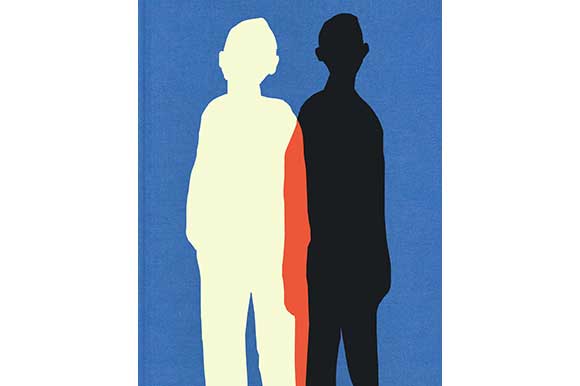
Total gross decreased by 86 percent from 4,145,123 EUR / 13,264,395 GEL in 2019 to 564,637 EUR / 2,258,549 GEL in 2020.
Admissions to domestic films decreased from 37,865 in 2019 to 2,000 in 2020.
Domestic box office decreased significantly. It was 119,979 EUR / 383,934 GEL in 2019, but the final statistics for 2020 were not ready at the beginning of 2021.
GRANTS AND LEGISLATION
The Georgian National Film Centre handles cinema strategy and allots state funding.
The total amount of funding in 2020 was 1,262,376 EUR / 5.1 m GEL. The GNFC gave out 1,660,043 EUR / 5,017,359 GEL in 2019.
In February 2020 the GNFC gave out 250,000 EUR / 800,000 GEL for the production of two first feature films.
In April 2020 the GNFC gave out 434,750 EUR / 1,499,888 GEL for the production of three feature films.
In May 2020 the GNFC allotted 135,402 EUR / 473,908 GEL for the production of six long documentaries.
In June 2020 the GNFC gave out 116,759 EUR / 396,982 GEL for the production of seven short films.
In July 2020 the GNFC allotted 202,898 EUR / 700,000 GEL for the production of two international coproductions.
The new Feature Film Script Grants were announced by the GNFC on 24 July 2020. A total of 41,449 EUR / 167,453 GEL was distributed to 17 projects.
The total amount of grants for short animated films, announced on 5 October 2020, was 17,082 EUR / 64,061 GEL.
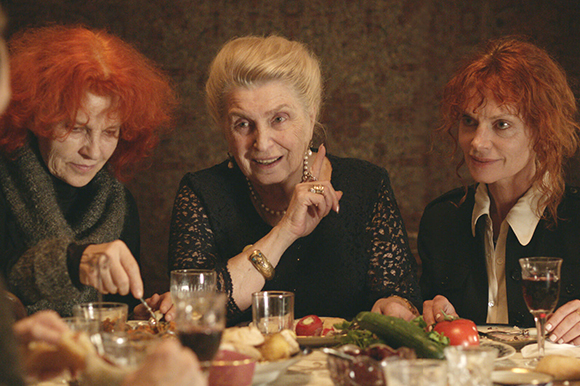 In November 2020 the GNFC gave out 47,259 EUR / 189,036 GEL for the development of 13 documentaries.
In November 2020 the GNFC gave out 47,259 EUR / 189,036 GEL for the development of 13 documentaries.
The Georgian Feature Film Development Grants were announced by the GNFC in December 2020. The total amount of grants was 45,000 EUR / 180,000 GEL.
Georgia launched its coproduction scheme for feature films in 2010 and a new call for documentary coproductions in March 2014.
The tax incentives programme, which went into operation in 2016, offers a 20% cash rebate on qualified expenditure with an additional rebate of 2-5% based on the promotional value of the production.
The minimum limit of qualified expenses is approximately 190,000 EUR / 500,000 GEL for feature films, TV films, TV series/mini-series or animated films, and approximately 114,000 EUR / 300,000 GEL for documentaries, commercials, reality shows and music videos.
The programme has two stages. After shooting wraps in Georgia, 20% of qualified expenditure is automatically returned to the production company. When the film is finished and released, it is assessed according to pre-defined criteria (Georgia is mentioned as an acting place on the script level, well-known locations are used, etc.) for the additional 2-5% rebate. Both Georgian and foreign projects may participate.
No cultural test is required in order to apply for the initial 20% rebate, and the rebate also applies to key non-resident salaries paid in Georgia. The online application is valid for two years.
The Regional Film Fund of Adjara, on the Black Sea coast, launched in 2012, is also expected to boost the film initiative.
On 24 February 2015 Georgia joined the Creative Europe Programme.
The project Film at School started in 2014. According to data from 2018, a total of 800 schools from all regions of Georgia participated and 9,800 screenings took place since 2014. The project covered 90 schools and held a total of 1,024 film screenings in 2019. Due to the Coronavirus pandemic, the project conducted the 2020 season in a different format. A new online film education platform has been set up with the support from Creative Europe. Children watch films, discuss them and learn to make short films with the help of professionals.
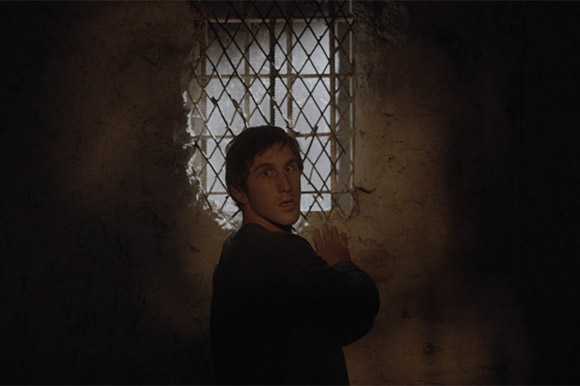 The project won the Cinema Education contest (EACEA-14-2017 FILMEDU) in the framework of the Creative Europe Programme and became part of the project The Film Corner Reloaded - A Cultural Approach Together with Foreign Partners, organised by Fondazione Cineteca Italiana (Italy), The Film Space, (UK), The Nerve Center (Northern Ireland), the National Cinèmatheque of Serbia (Belgrade, Serbia), Kino Otok (Slovenia) and the University of Milano Bicocca, Dipartimento di Scienze Umane per la Formazione Riccardo Massa (Italy).
The project won the Cinema Education contest (EACEA-14-2017 FILMEDU) in the framework of the Creative Europe Programme and became part of the project The Film Corner Reloaded - A Cultural Approach Together with Foreign Partners, organised by Fondazione Cineteca Italiana (Italy), The Film Space, (UK), The Nerve Center (Northern Ireland), the National Cinèmatheque of Serbia (Belgrade, Serbia), Kino Otok (Slovenia) and the University of Milano Bicocca, Dipartimento di Scienze Umane per la Formazione Riccardo Massa (Italy).
The "Summer Film School" was held for the sixth time during two weeks in the villages near the occupation line of Georgia in 2020. Due to the pandemic, the film screenings were held outdoors. The project partners are the GNFC, the Ministry of Education, Science, Culture and Sports of Georgia and Creative Europe.
The GNFC film educational project - History-Film-History won a 205,295 EUR grant from the Creative Europe 2020 MEDIA sub-programme. This is the first time in the history of several years of cooperation with Creative Europe that Georgia has won as a lead country. The project partners are: Fondazione Cineteca Italiana, The Film Space Ltd., and the National Cinèmatheque of Serbia. History-Cinema-History will produce materials in two directions - teaching the history of 20th century Europe using films and teaching the history of cinema.
TV
Leading TV companies continued to produce new TV series in 2020. The most popular TV series in Georgia are: Friends of My Wife / Chemi Tsolis Dakalebi (Formula TV, formula.ge), In the City / Shua Kalakshi (Imedi) and Around Us / Chven Gverdit (Maestro). Two new Georgian TV series started broadcasting in 2020 - Tesea (Formula TV) and Seance (Public Broadcasting – First Channel ).
The first Georgian children's animated TV series Rescuers also started broadcasting on the First Channel in 2020.
Private channels, Broadcasting Company Rustavi 2 and TV Imedi, are usually the producers of TV series. Public Broadcasting – First Channel also produces documentaries. TV channels do not fund independent film production as a rule, that depends on individual cases, according to sources from the GNFC.
One new TV channel opened in 2020, Lider TV.
The most popular domestic online platform is Myvideo.ge, a video sharing platform providing live streaming for dozens of TV channels.
CONTACTS:
GEORGIA NATIONAL FILM CENTER
4 Zviad Gamsakhurdia Named Right Bank
Tbilisi 0105, Georgia
Phone: (+995 322) 2 999 200
Fax: (+995 322) 2 999 102
www.gnfc.ge
This email address is being protected from spambots. You need JavaScript enabled to view it.
MINISTRY OF CULTURE AND MONUMENT PROTECTION GEORGIA
4, Sanapiro str., Tbilisi, Georgia, 0105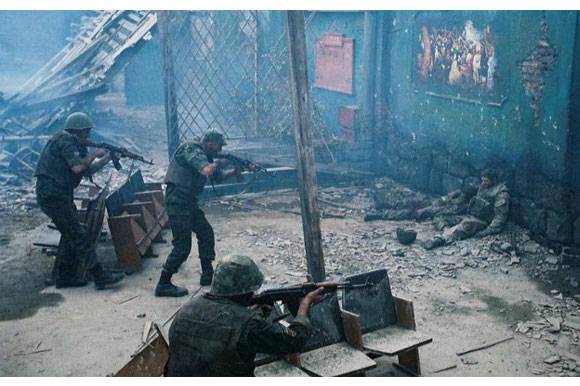
Media and Communications Division: (+995 322) 2 996 377
Office: (+995 322) 2 987 430
http://mcs.gov.ge/
This email address is being protected from spambots. You need JavaScript enabled to view it.
GEORGIA FILM ACADEMY
0108, Tbilisi, Kaabadze Brothers N2
(+ 995 32) 299 60 13, 293 50 97
http://geofa.org.ge/
This email address is being protected from spambots. You need JavaScript enabled to view it.
SHOTA RUSTAVELI THEATRE AND FILM GEORGIAN STATE UNIVERSITY
Building 1 – 19 Rustaveli Ave., Tbilisi 0108, Georgia
Building 2 – 40 David Agmashenebeli Ave., Tbilisi 0102, Georgia
Tel: (+995 32) 999 411
Fax: (+995 32) 983 075
http://www.tafu.edu.ge/
E-mail: This email address is being protected from spambots. You need JavaScript enabled to view it.
Report by Alexander Gabelia (2021)
Sources: the Georgian National Film Centre, “Film in Georgia”, Cinemas: Rustaveli, Amirani, Cavea Tbilisi Mall, Cavea East Point
Croatia
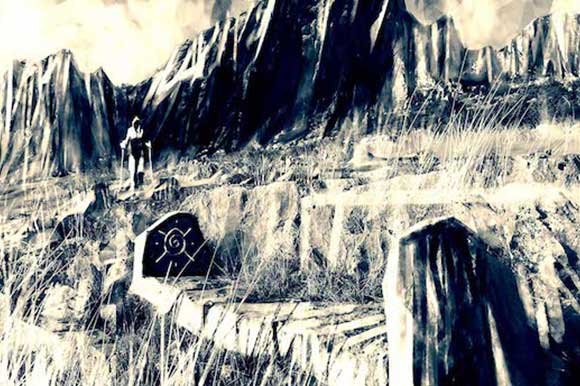 MARKET ANALYSIS 2021
MARKET ANALYSIS 2021
ZAGREB: The total gross of Croatian cinemas surged from 5.9 m EUR in 2020 to 11.7 m EUR in 2021, mainly due to cinemas reopening after the lockdowns. Box office for Croatian films jumped from only 77,600 EUR in 2020 to 840,164 EUR in 2021, which is close to 1 m EUR in the pre-pandemic year 2019. The number of domestic releases in 2021 was 17, compared to 19 releases in 2020.
The amount spent by international productions filming in Croatia was 25.8 m EUR / 195.8 m HRK, with 16 international projects spending a total of 413 days in the country. This is seen as a big recovery after the troublesome COVID-19 year, when nine projects filmed for 161 days and spent only 11,6 m EUR / 87,3 m HRK in the country.
PRODUCTION
Sixteen Croatian feature films were shot in 2021 with the support of the Croatian Audiovisual Centre (HAVC). Two TV series by Dalibor Matanić were also filmed.
Director Dubravka Turić, winner of the Venice Horizons Award for the short film Belladona in 2015, shot the second half of her debut feature Traces / Tragovi. The first part of the film was filmed in September 2020. Produced by Kinorama and coproduced by Romania’s MicroFILM, the film is a drama with mystical elements that encompasses the four seasons of a single year, following middle-aged Ana (Marija Škaričić), who is struggling to understand the connections in her life.
The directorial duo Andrija Mardešić and David Kapac filmed their debut feature The Uncle / Stric. This is also the first feature film produced by the renowned short film production company Eclectica, in collaboration with Serbia’s SENSE Production. The story seems to be set in Yugoslavia in the late 1980s, when a family welcomes their beloved uncle, who has returned home for the holidays from Germany. All is well until a smartphone starts ringing, a sign that it is not the 80s and not even Christmas.
Vanja Juranić filmed her sophomore feature Closed to the Public / Zatvoreno za javnost, produced by Croatia’s Maxima Film in coproduction with Serbia’s Biberche. The film follows 28-year-old Tina, who expresses the desire to continue the studies she interrupted due to her pregnancy, but her husband begins a quiet but persistent rebellion that leads to his tragic end.
In 2021, Juraj Lerotić filmed his debut feature Safe Place / Sigur nomjesto produced by PIPSER. In the early stages of development, the project won the Eurimages Co-production Development Award at 2018 Cinelink. Safe Place is an intimate family drama set within 24 hours. The events triggered by a sudden suicide attempt of Damir reveal the shortcomings of the health system, but also a deep inability to deal with crisis within his family.
Radislav Jovanov Gonzo, a famous Croatian music video director, also filmed his debut feature in 2021. Punim plućima produced by Fade In is set in early 2000s, when a death of an old school friend reunites a crew of “eternal students”, whose youth was disturbed by war in the 1990s. The reunion becomes a Pandora's box that slowly opens the most difficult questions of life.
Goran Dević, known mostly for his documentaries, filmed the feature drama What's to Be Done? / Što da se radi? Produced by Petnaesta umjetnost, the film follows a personal struggle of 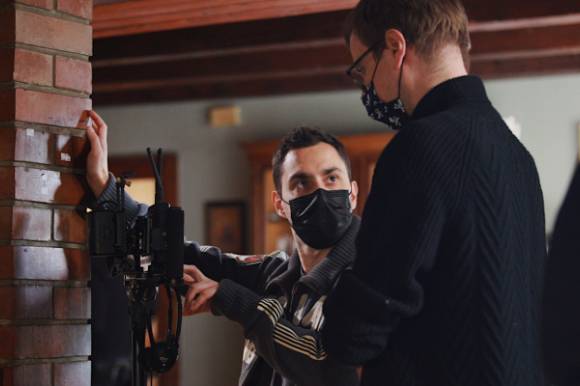 the head of the union at the Gredelj railway car factory. He is torn between the guilt he feels because of his deputy’s suicide and the workers’ expectation that he’ll lead a strike that should thwart the government’s plans, ordered by the EU, to send the company to bankruptcy.
the head of the union at the Gredelj railway car factory. He is torn between the guilt he feels because of his deputy’s suicide and the workers’ expectation that he’ll lead a strike that should thwart the government’s plans, ordered by the EU, to send the company to bankruptcy.
Simon Bogojević Narath, known for his animation and CGI work, filmed his first feature film llyricvm. Set in 36 BC, the film follows a young Illyrian shepherd Volsus, who takes up service with a unit of Roman legionaries passing through his village, in exchange for a goat for his poor family. The film is produced by Kinorama in coproduction with Slovenia’s Forum Ljubljana, Italy’s La Sarraz Pictures, Kosovo’s Buka Production and Bosnian SCCA/Pro.ba.
Vlatka Vorkapić filmed Holy Family / Sveta Obitelj, a feature drama set in the agricultural region of Slavonia in 1960s. Developed for 13 years, the film is coproduced by Croatia’s Interfilm and Serbia’s Zillion film. It introduces the famous Serbian actor Nikola Đuričko to Croatian film, following a story of a wealthy villager who decides to marry off his son, in a story that digs deep in the underbelly of the mid-20th century patriarchy.
Filip Heraković filmed his debut feature The Pelican / Pelikan, produced by Wolfgang& Dolly. The film follows Josip, a goalkeeper recovering after a career-ending injury. Faced with a major life change, Josip goes through an identity crisis and decides to introduce himself as someone else, after being confused for a sales representative of robotic vacuum cleaners. The main role is played by Edi Ćelić, actor of the Croatian National Theatre in Rijeka.
Andrej Korovljev, also known for his documentary work, filmed his debut feature Pula, produced by Kinematograf. Bosnian actor Ermin Bravo took the lead role of Mahir, a refugee from the 1990s war who develops a romantic affair with a much younger Croatian girl. The film is set in wartime Pula, the coastal Croatian city that served as a safe haven for thousands of people displaced during the ex-Yugoslav war.
Pavo Marinković, the artistic director of the Pula Film Festival, shot his new feature film The Miljacka Vampires / Vampiri s Miljacke. The immigrant comedy explores the relationship between the "civilised" West and the "temperamental" Balkans through the story of a Sarajevo man who, after 20 years of living abroad, is desperate to extend his residence permit in Austria. The film is produced by Croatia’s Telefilm in coproduction with Austria’s Nanook Film.
Jasna Nanut, known for her TV reporting work and successful short films, filmed her debut feature Seventh Heaven / Sedmo nebo. Produced by Petnaesta umjetnost, the film explores the funny side of a midlife crisis. At the heart of the story is a man torn between his wife, mistress, children, weight, work, a dog, and high blood pressure, and who becomes increasingly entangled in a web of his own high expectations.
Goran Kulenović filmed his new feature film The Death of the Little Match Girl / Smrt djevojčice sa šibicama, based on a novel by famous Croatian writer Zoran Ferić and produced by LivadaProdukcija. The story follows a pathologist who gets involved in the investigation of a mysterious murder of a Romanian prostitute in a small-town microcosm.
Lukas Nola filmed Escort produced by Kinorama in coproduction with North Macedonia’s Skopje Film Studio and Kosovo’s Buka Production. Escort is a modern blend of black comedy drama and crime thriller, following the story of a commercial producer who ends up in trouble after spending a night with a sex worker. The premiere is expected for mid-2022, in time for the Pula Film Festival.
Arsen Oremović, known as a film critic and documentary director, filmed his debut feature The Head of a Big Fish / Glavavelikeribe, produced by Izazov 365. Based on the motifs of Ognjen 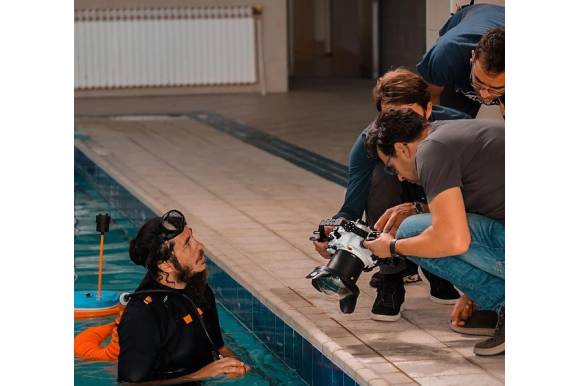 Sviličić's book of the same name, the screenwriting was mentored by Romanian screenwriter Răzvan Rădulescu. Following the story of a war veteran and his business-savy brother, the film paints a picture of today's Croatia crucified between war and peace, idealism and consumerism.
Sviličić's book of the same name, the screenwriting was mentored by Romanian screenwriter Răzvan Rădulescu. Following the story of a war veteran and his business-savy brother, the film paints a picture of today's Croatia crucified between war and peace, idealism and consumerism.
Kristijan Milić filmed his new feature film Anger of God / Božji gnjev, produced by Eurofilm. The film is a continuation of a fruitful collaboration between the Croatian director, famous for his war films, and the Bosnian writer Josip Mlakić, who has co-written three scripts with Milić so far. Anger of God is based on his bestselling book about Croatian soldiers in shady undercover operations in Bosnia during the 1990s war.
The filming of foreign productions in Croatia has returned to pre-pandemic levels, with 16 projects filming for a total of 413 days and spending 26.1 m EUR / 195.8 m HRK in the country.
The two biggest projects were the British series The Ipcress File by James Watkins, produced by Altitude Television and ITV Studios, and serviced by MP-film production, which filmed in Zagreb, Opatija, Lovran, Rijeka, Split, Brela and Krk in April - June 2021, and the period drama Hotel Portofino by Adam Wimpenny, produced by Eagle Eye in association with Beta Film, which was serviced by Drugi plan and was filmed in Opatija, Lovran, Rovinj, Pula and Bale in June - July 2021.
Crossing by Jacqueline Van Vugt, a coproduction between the Netherlands, Belgium and Croatia (Nukleus film), was also filmed in May 2021, as part of the incentive programme.
In July 2021, the German TV film The Summer in Istria / Ein Sommer in Istrien by Tomasz E. Rudzik, produced by Moviepool GmbH and serviced by PAKT Media, was shot in Istria, while the American Netflix film The Weekend Away directed by Kim Farrant was filmed in Split with the help of Croatian PAKT Media.
The shooting of the German feature film Over & Out directed by Julie Becker started in Istria at the end of August 2021, again serviced by PAKT Media.
The end of the summer saw the start of the shooting of the British series Conversations with Friends directed by Leanne Welham and Lenny Abrahamson (produced by Element Pictures and serviced by Embassy Films), the German feature film Faraway directed by Vanessa Jopp (produced by Olga film and serviced by PAKT Media), the Swedish/British Netflix series Spotify directed by Per-Olav Sørensen and serviced by MP-film production, and Infinity Pool, a coproduction between Canada’s Film Forge and Elevation Pictures, directed by Brandon Cronenberg 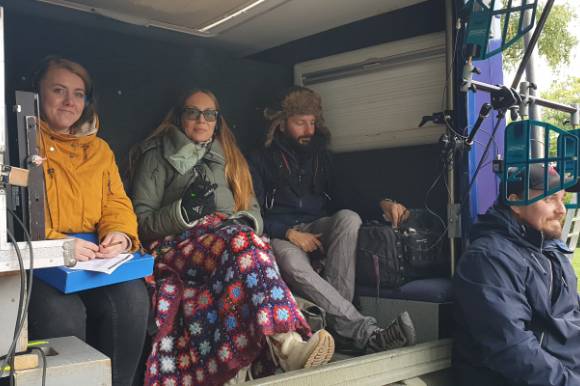 and coproduced by Croatian 4film, Hungarian Herosquared and France’s Celluloid Films.
and coproduced by Croatian 4film, Hungarian Herosquared and France’s Celluloid Films.
As of July 2018, the cash rebate for filming in Croatia was raised from 20% to 25%, and up to 30% in underdeveloped regions.
The total amount spent by foreign productions using cash rebates since the start of implementing the Incentive Measures Programme exceeded 173.8 m EUR / 1.3 billion HRK by the end of 2021, with a total of 95 applications submitted by foreign production companies.
DISTRIBUTION
A total of 235 films were released in regular distribution in 2021, compared to 179 in 2020. Out of 173 new releases in 2021, 17 were domestic, compared to 19 in 2020.
The biggest domestic distributor is Blitz, with more than 70% of the Croatian box office, followed by Editus, Continental Film and Discovery. The domestic distribution network includes 104 cinemas with 200 screens, of which 18 miniplexes and multiplexes, and 86 traditional cinemas.
Seen from the perspective of festival placement, 2021 is certainly among the most successful in the history of Croatian cinema, despite the obstacles related to the COVID-19 pandemic. During 2021, Croatian films were selected for over 300 international festivals, including Berlin, Cannes and Venice, and won dozens of awards.
The most trophy-winning title in 2021 is Marko Dješka's short animated film All Those Sensations in My Belly, which was screened at 88 festivals, including the Annecy International Animated FF, and which won 16 awards. The film was produced by Adriatic Animation in coproduction with Portugal’s BAP animation studio, and it is distributed by Bonobostudio.
The year was also marked by the stellar performance of Antoneta Alamat Kusijanović's debut feature Murina,which had its world premiere in the Quinzaine des Réalisateurs section in Cannes, where it won the Camera d’Or for best debut, after which it screened at another 38 festivals, winning additional 10 awards. Murina was produced by Croatia’s Antitalent and Brazil’s RT Features, and coproduced by Croatia’s Spiritus Movens, Sikelia Prods from the USA and Slovenia’s SPOK Films and Staragara. KBMO released the film in France, and Modern Films secured theatrical releases in the UK and Ireland.
For the first time, one Croatian TV series was awarded at Series Mania in Lille, France. The honour went to The Last Socialist Artefact / Područje bez signal by Dalibor Matanić, produced by Croatia’s Kinorama and coproduced by Serbia’s Sense Production, Slovenia’s Perfo Production and Finland's Citizen Jane.
The Croatian minority coproduction Bad Luck Banging or Loony Porn / Babardeală cu bucluc sau porno balamuc directed by Radu Jude won the Golden Bear at the 71st edition of the Berlin IFF. The film was produced by Romania’s microFILM in coproduction with Luxembourg's Paul 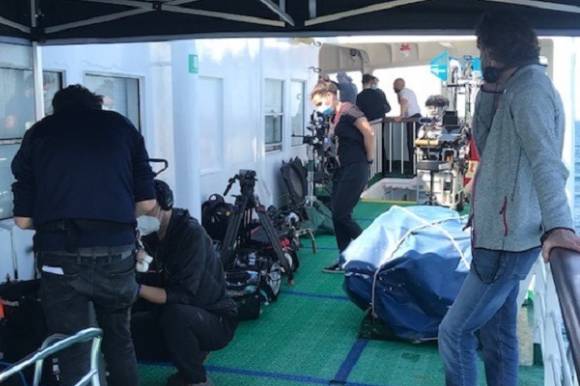 Thiltges Distributions, Czech Republic's endorfilm and Croatia's Kinorama.
Thiltges Distributions, Czech Republic's endorfilm and Croatia's Kinorama.
As part of the Sofia IFF, Dalibor Matanic's feature film Dawn / Zora, produced by Kinorama, was screened as part of a competition for films from the region, and later got released on HBO. Zrinko Ogresta's film Blue Flower / Plavi cvijet had its world premiere in the main competition programme of the 43rd Moscow IFF, and later won the Grand Golden Arena at the Pula Film Festival.
After a long time, a Croatian film was part of the main competition of the Karlovy Vary IFF. The debut feature film by Sonja Tarokić, Staffroom / Zbornica produced by Kinorama, won the Special Award from the main jury of the Crystal Globe Competition, as well as the Ecumenical Jury Award.
The joint project of the Croatian State Archives - Croatian Cinematheque and HAVC, a restored version of one of the best Croatian films of all time by Nikola Tanhofer, the drama H-8 produced by Jadranfilm in 1958, has been selected for the Venice Classics programme of the 78th Venice IFF. Screenings from this section were supposed to take place during the festival in September 2021, but due to the pandemic they were postponed to February 2022.
The long documentary Museum of the Revolution / Muzejrevolucije by Srđan Keča, produced by Croatia’s Restart and Serbia’s Uzrok, and coproduced by Czech Nutprodukce, the Croatian Radiotelevision, Al Jazeera Documentary Channel and Germany’s GEO Television, had its world premiere at the 34th edition of the International Documentary Film Festival in Amsterdam - IDFA.
EXHIBITION AND BOX OFFICE
A total of 235 films, including 173 new releases, were distributed in regular distribution in 2021, compared to 179 in 2020.
The total admissions were 2,458,853 compared to 1,388,742 in 2020. Total gross reached 11.7 m EUR / 88.3 m HRK, compared to 5.9 m EUR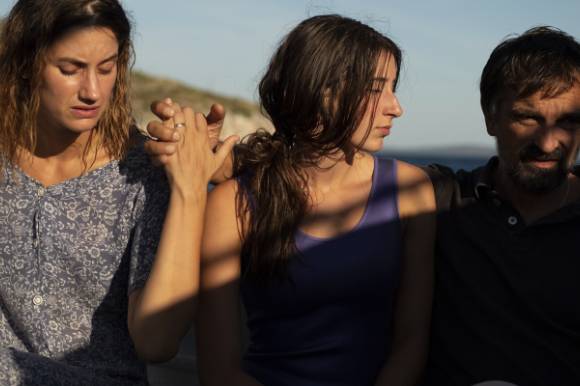 / 44.6 m HRK in 2020.
/ 44.6 m HRK in 2020.
The biggest exhibitor is Blitz Cinestar, followed by Cineplexx. Additionally, films are independently distributed through the Croatian Independent Cinemas Network, which includes 48 with 72 screens in 55 cities and on the islands. Eight new independent cinemas were digitalised and opened in 2021, all located in community-owned venues: cinema Kalnik in Križevci, Centar za kulturu in Mrkopalj, cinema Pitomača in Pitomača, Dječjakuća in Rijeka, cinema Slunj in Slunj, art-cinema Arsen in Šibenik, cinema Velilošinj in VeliLošinj and cinema Mladost in Županja.
Additionally, a new digitalised open air venue opened in Sutivan and a new mobile cinema Kino Istra was launched by the Motovun Film Festival.
The Ministry of Culture and Media invested 396,900 EUR / 3 m HRK in new digital equipment for independent cinemas.
The 10 most watched films in Croatian cinemas in 2021, according to BoxOffice.hr, were: No Time to Die (with 125,183 admissions), South Wind 2: Speed Up (with 114,216 admissions), Spider-Man: No Way Home (with 107,571 admissions), Dune (with 70,429 admissions), Venom: Let There Be Carnage (with 67,169 admissions), Fast & Furious 9 (with 65,569 admissions), Luca (with 61,654 admissions), Toma (with 60,744 admissions), Paw Patrol: The Movie (with 58,808 admissions) and House of Gucci (with 53,778 admissions).
The most viewed Croatian title of the year, according to the Croatian Audiovisual Centre (HAVC), was the minority coproduction South Wind 2: Speed Up / Južnivetar 2: Ubrzanje produced by Serbia’s Režim doo and coproduced by Serbia’s Telekom Srbija, hArchangel Digital Studios, Archangel Studios, Film District and Croatia’s Telefilm, with 114,216 admissions and 629,231 EUR / 4.7 m HRK gross.
The second place belongs to the documentary Love Around the World / Ljubav oko svijeta by Anđela and Davor Rostuhar, produced by KEK, Drugi plan and Autentic, which turned out to be a surprise hit with 16,917 admissions and 58,252 EUR / 438,061 HRK gross.
The international festival hit Murina directed by Antoneta Alamat Kusijanović holds the third place with 11,209 viewers and 38,385 EUR / 291,343 HRK gross.
Another debut feature, The Staffroom / Zbornica by Sonja Tarokić managed to get in the top five. The film about the lives of school teachers had 6,416 admissions and earned 27,275 EUR / 207,028 HRK in domestic cinemas.
Fifth place is held by experienced Croatian helmer Branko Schmidt with his feature film Once We Were Good to You / A bili smo vam dobri, 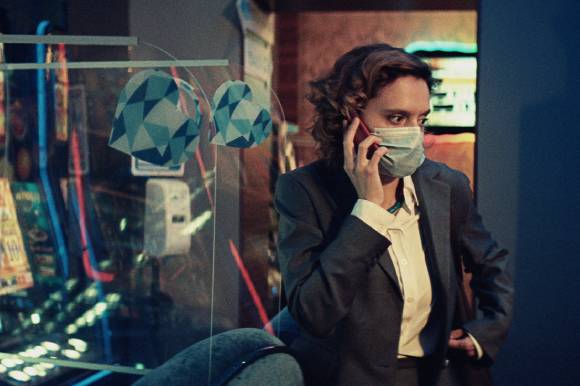 produced by Telefilm. The war veteran drama had 4,986 admissions and earned 20,053 EUR / 152,199 HRK.
produced by Telefilm. The war veteran drama had 4,986 admissions and earned 20,053 EUR / 152,199 HRK.
Other high-grossing Croatian films include Zrinko Ogresta's Blue Flower / Plavicvijet (produced by Inter Film) with 4,678 admissions, followed by Tune Up / Po tamburi, directed by Stanislav Tomić and produced by Kaos with 3,087 admissions, The Age of Uskoks / Doba Uskoka, directed by Božidar Domagoj Burić and produced by the Croatian Radiotelevision, with 2,978 admissions, The Dawn / Zora by Dalibor Matanić with 2,601 admissions, and Tereza37 directed by Danilo Šerbedžija and produced by Focus Media, with 1,646 admissions.
VOD PLATFORMS AND ONLINE DISTRIBUTION
In addition to international streaming services such as Netflix, HBO GO and Amazon Prime, the local streaming service Pickbox.hr, founded in 2014, remains a popular choice among the Croatian internet users.
Leading internet providers T-Com, Bnet and Iskon Internet provide IPTV services with VOD packages including international and domestic feature films, animated and documentary films, as well as TV series.
The Croatian Radiotelevision offers its own VOD service HRTi, free for all TV subscribers, offering a wide range of domestic and foreign productions. The broadcasters with a national concession, Nova TV and RTL, also offer VOD services with TV series, films and TV shows.
The Restart association pioneered independent VOD platforms in Croatia with their project Volim Dokumentarce, which offers a wide catalogue of Croatian and international documentary films, but also masterclasses by renowned documentary filmmakers. The films can be rented for 0.95 to 2.85 EUR or downloaded for 5.69 EUR.
The free of charge VOD platform Croatian.film, dedicated to the promotion of Croatian short films, and Kino Europa Online, dedicated to independent feature films, are managed by Propeler Film. Streaming on the Kino Europa Online platform ranges from free of charge to 1.90 EUR per film.
The SVOD platform Svevid presents Croatian and regional cinematography with titles from former Yugoslavia from the 1940s until the present day. Yearly membership fee is 48 EUR / 360 HRK, with the possibility to subscribe on a monthly or bi-yearly basis.
Kino Mediteran od doma is the VOD platform set up by the Kino Mediteran project, founded by the organisers of the Mediterranean Film Festival Split. The platform offers a variety of Croatian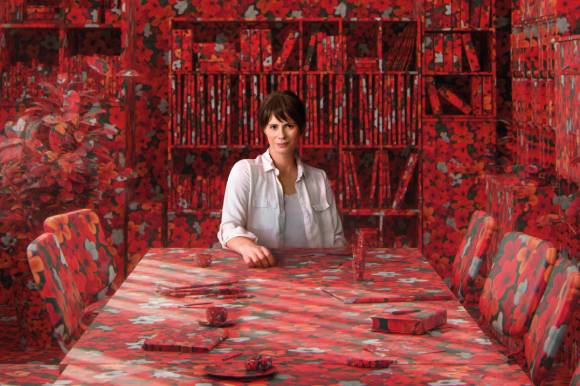 and international independent feature films, for a fee of 3 EUR / 20 HRK per film.
and international independent feature films, for a fee of 3 EUR / 20 HRK per film.
The independent cinemas Duga Resa, Lič, Plaški and Vrbovsko united their offers in the Kino.hr platform, maintained by the Radar distribution company.
In 2021 Croatia saw the launch of two VOD platforms, one from Croatia and one from Russia. Croatian distribution companyDiscovery film launched its new VOD platform MovieMix, offering a wide range of independent and classic films. Subscription fees range from 5 to 9 EUR per month.
In November 2021, the Russian VOD platform START opened its large catalogue from the former Soviet Bloc territories for Croatian viewers for 5 EUR per month.
GRANTS AND NEW LEGISLATION
The most important film institution is the Croatian Audiovisual Centre (HAVC) founded in January 2008 and led by Christopher Peter Marcich since 2019. HAVC provides public funding for the development, production, promotion and sales of Croatian film abroad, festivals, schemes and programmes aimed at widening audience choice, supporting film education, culture and archives, as well as skills and training initiatives.
The total budget of the HAVC in 2021 was 19.9 m EUR / 150 m HRK, according to the Ministry of Culture.
HAVC operated with a total budget of 9.11 m EUR in 2012, a total budget of 11.64 m EUR in 2013, of 10.975 m EUR in 2014 and 11.15 m EUR in 2015. HAVC’s total budget for 2016 was 10.8 m EUR, in 2017 it was 15.5 m EUR, followed by 11.1 m EUR (without cash rebate) in 2018. The total budget in 2019 was 19.9 m EUR, followed by the same amount in 2020.
In March 2021, HAVC awarded 277,200 EUR / 2.1m HRK to five minority coproductions, including the animated short film Real Cindarella / Prava pepeljuga by Sara Božanić, produced by Croatia’s Minya film i animacija and coproduced by Portugal’s Sparkle Animation and Montenegro’s Institute for Transmedia Design; the debut feature Sirin by Senad Šahmanović, coproduced by Montenegro's Cut-Up, Croatia's Sekvenca, Albania's On Film Production, Kosovo's Buka and Bosnia's Dokument; the feature film Kajmak by Milčo Mančevski, produced by Macedonia’s Banana Film and UK’s Scala Productions, and coproduced by Croatia’s Nukleus Film, Denmark’s Meta Film, the Netherlands’ N279 Entertainment and Bulgaria’s Dare Films; the feature film Pukotina u ledu by Maja Miloš, produced by Serbia’s Baš Čelik and coproduced by Croatia’s Propeler Film, the Netherlands’ Volya Films, Italy’s Nightswim, Slovenia’s Zavod Spok and Vertigo Ljubljana, and Montenegro’s Quadrifolium Films; and the long documentary Taj zvuk u visini by Srđan Keča, produced by Serbia’s Non-Aligned Films, Croatia’s Restart and France’s Bocalupo Films.
In addition, a request for support was approved for the additional costs of shooting of the short fiction film The Boy by Hrvoje Mabić, produced by Croatia’s Studio Dim, due to extraordinary circumstances caused by the COVID-19 pandemic. The film received 5,150 EUR / 39,000 HRK of additional support.
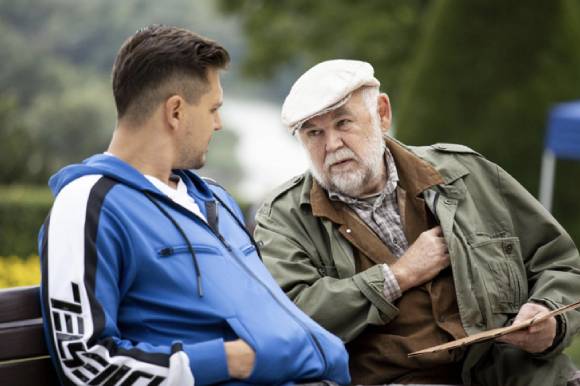 On 14 June 2021, the Croatian Audiovisual Centre distributed 2.1m EUR / 15.8 m HRK for the production of 20 feature, documentary and animated films. A total of 247,000 EUR / 1.85m HRK was awarded to five minority coproductions. God Will Not Help / Bog nećepomoći by Hana Jušić, produced by Kinorama, got the highest support of 641,000 EUR / 4.8 m HRK, out of 32 feature projects that applied. The artistic advisors also decided to support two debut features: Koke by Igor Jelinović, produced by Eclectica, and Blok 62 by Vanja Vascarac, produced by Antitalent. HAVC also supported the script development for 21 feature, animated and documentary films with a total of 78,666 EUR / 590,000 HRK, while 120,100 EUR / 900,000 HRK was awarded for the project development of nine feature films.
On 14 June 2021, the Croatian Audiovisual Centre distributed 2.1m EUR / 15.8 m HRK for the production of 20 feature, documentary and animated films. A total of 247,000 EUR / 1.85m HRK was awarded to five minority coproductions. God Will Not Help / Bog nećepomoći by Hana Jušić, produced by Kinorama, got the highest support of 641,000 EUR / 4.8 m HRK, out of 32 feature projects that applied. The artistic advisors also decided to support two debut features: Koke by Igor Jelinović, produced by Eclectica, and Blok 62 by Vanja Vascarac, produced by Antitalent. HAVC also supported the script development for 21 feature, animated and documentary films with a total of 78,666 EUR / 590,000 HRK, while 120,100 EUR / 900,000 HRK was awarded for the project development of nine feature films.
On 15 June 2021, HAVC additionally supported four feature films and two short films whose production had been affected by the Coronavirus pandemic, with a total amount of 126,434 EUR / 946,838 HRK. The supported features included Uncle / Stric by Andrija Mardešić and David Kapac, produced by Eclectica, the debut feature Closed to the Public / Zatvoreno za javnost by Vanja Juranić, produced by Maxima film, the feature film Safe Place / Sigurnomjesto by Juraj Lerotić, produced by Pipser, and debut feature Illyricvm by Simon Bogojević Narath, produced by Kinorama.
HAVC also distributed 133,533 EUR / 1 m HRK for the production of three short fiction films, 114,838 EUR / 860,000 HRK for the production of seven experimental films and 80,119 EUR / 600,000 HRK for the development of eight TV series.
Click HERE to see all the grants results in 2021.
On 29 December 2021, HAVC supported the production of three feature films with 1.2 m EUR / 9 m HRK. The supported projects included Žene, luđaci I malo dobrih pedera by Ivan Salaj, produced by Plavi mjesec, Prijeljeta by DanisTanović, produced by Propeler film, and 4:2 by Anđelo Jurkas, produced by DOP produkcija. Additionally, 13 documentary projects were supported with 400,350 EUR / 3m HRK in total, five animated films got a total of 468,200 EUR / 3.5m HRK, five experimental films got 740,000 EUR / 5.56m HRK in total, and short films received 186,250 EUR / 1.4 m HRK.
Under the Croatian cash rebate scheme, projects can claim back 25% of their qualifying expenditure, which is based on the cost of the Croatian cast and crew working in Croatia, as well as goods and services purchased in Croatia, with a cap of around 2.6 m EUR per project (exceptions allowed). Additional 5% is awarded to productions filming in regions of below average development.
Filming in Croatia, a department within the HAVC, ensures that Croatia remains a film-friendly location for both local and visiting filmmakers.
Zagreb Film Office was launched in 2019, with a goal of assisting both local and international film crews in their work in the Croatian capital. The Zagreb Film Office works under Zagreb Film, a city-funded institution known for its animation production, led by Vinko Brešan. The office is led by the local producer Mia Pećina Drašković.
The Istria Film Commission was launched in July 2015, following the example of the Zadar Film Commission in helping filming crews in location scouting, communication with public authorities and domestic producers and crew, obtaining filming permits and accessing databases. The Kvarner Film Commission opened in Rijeka in 2017.
Additional public support bodies are the Zagreb City Office for Education, Culture and Sport and the Rijeka City Office for Culture.
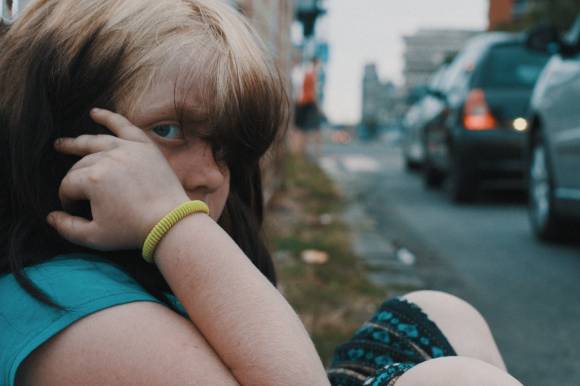 At the beginning of 2021, the Ordinance on the Categorisation of Audiovisual Works was followed, mid-year, by the Ordinance on the Procedure, Criteria and Deadlines for the Implementation of the National Programme for the Promotion of Audiovisual Creativity.
At the beginning of 2021, the Ordinance on the Categorisation of Audiovisual Works was followed, mid-year, by the Ordinance on the Procedure, Criteria and Deadlines for the Implementation of the National Programme for the Promotion of Audiovisual Creativity.
At the end of 2021, the following ordinances were adopted: Rules on the Register of Producers, Rules on the Distributor Register, and Rules on the Register of Exibitors, as well as Regulations on Maintaining Official Records on Filming.
Other important laws for the audiovisual sector that were approved in 2021 are the Electronic Media Act (harmonisation with the AVMSD - Audiovisual Media Services Directive) and the Copyright and Related Rights Act (OG 111/21) implementing harmonisation with the Digital Single Market Copyright Directive, Digital Market and amending Directives, as well as the Sat Cab 2 Directive, which lays down rules on the exercise of copyright and related rights applicable to Internet broadcasts and retransmission.
TV
As stipulated by the 2007 Croatian Film Act, the Croatian public broadcaster Croatian Radiotelevision (HRT), as well as all other Croatian broadcasters with a national concession (Nova TV, RTL), are obliged to contribute towards the funding of the HAVC.
As a public broadcaster, the Croatian Radiotelevision plays an important role in the promotion of national cinema through its two terrestrial and two digital channels, and it is legally obliged to invest a minimum of 15% of its programming budget in works by independent producers.
The hyper-productive director Dalibor Matanić filmed two new TV series in 2021. Both of them premiered at the end of the year and managed to gain wider international attention. The Silence / Šutnja is produced by Drugi Plan and the Croatian Radiotelevision in coproduction with Germany’s Beta Film, Ukraine’s StarMedia, OLL.TV and with the support of ZDF/ARTE. Based on the trilogy of novels by investigative journalist Drago Hedl, the six-episode series follows the interlinked stories of human trafficking in Kiyv and the Croatian town of Osijek, where the true story that inspired the novels happened in the late 1990s.
The Last Socialist Artefact / Područje bez signala by Dalibor Matanić is produced by the Croatian National Television and Kinorama, and coproduced by Serbia’s Sense Production, 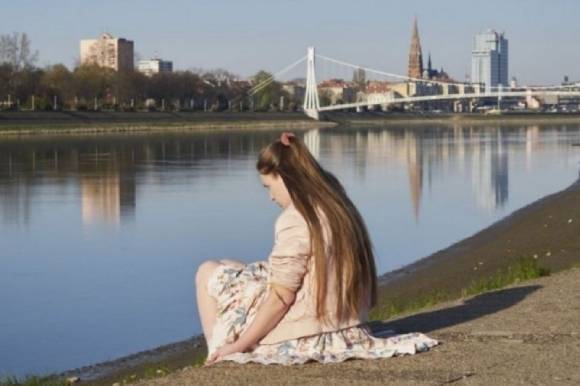 Slovenia’s Perfo Production and Finland’s Citizen Jane. The project also benefitted from the cash rebate programme. The six-episode series follows Oleg and Nikola, two “urban survivors” who are brought to a remote town in the Balkans when a mysterious Colonel places an order for a specific type of turbine. To deliver it, they need to renovate a long-abandoned factory in a town sunken into despair.
Slovenia’s Perfo Production and Finland’s Citizen Jane. The project also benefitted from the cash rebate programme. The six-episode series follows Oleg and Nikola, two “urban survivors” who are brought to a remote town in the Balkans when a mysterious Colonel places an order for a specific type of turbine. To deliver it, they need to renovate a long-abandoned factory in a town sunken into despair.
The private broadcasting company Nova TV premiered its new TV series Best Men / Kumovi directed by Darko Drinovac, Robert Orhel, Tomislav Rukavina and Zoran Margetić. Created by Dea Matas and Nataša Buljan, the 52-episode dramedy follows the complicated relationship of three interconnected families fighting over money and influence.
According to the Croatian Television Ratings Measurement Association (UMTG), Nova TV was the most popular TV channel in 2021, amounting to 22% of the viewership share. It was followed by HTV1 (18.6%), RTL (12.8%), Doma TV (8%) HTV2 (7.7%), RTL2 (5%), HTV4 (3.1%), RTL kockica (1.7%), HTV3 (1.6%) and N1 (1.1%).
CONTACTS:
CROATIAN AUDIOVISUAL CENTRE (HAVC)
Trg J. J. Strossmayera 410 000 Zagreb, Croatia
Phone: +385 (0)1 6041 080
www.havc.hr
This email address is being protected from spambots. You need JavaScript enabled to view it.
MEDIA DESK CROATIA
Ulica KraljaZvonimira 20
10 000 Zagreb, Croatia
Phone: +385 (0)1 4655 434
www.mediadesk.hr
This email address is being protected from spambots. You need JavaScript enabled to view it.
MINISTRY OF CULTURE AND MEDIA - DIRECTORATE FOR PERFORMING ARTS AND AUDIOVISUAL AFFAIRS
Runjaninova 2
10 000 Zagreb, Croatia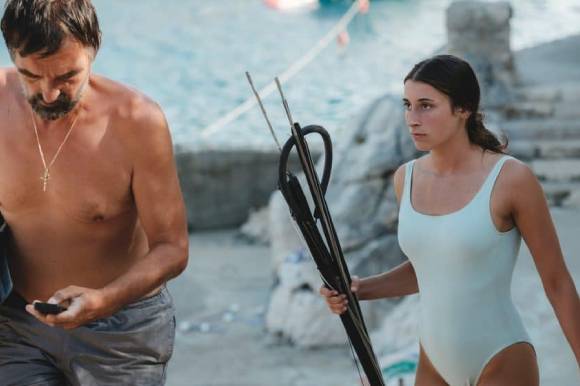 Phone: +385 (0)1 4866 200
Phone: +385 (0)1 4866 200
www.min-kulture.gov.hr
FILMMAKERS ASSOCIATION OF CROATIA
Britanskitrg 12
10 000 Zagreb, Croatia
Phone: +385 1 48 47 024
This email address is being protected from spambots. You need JavaScript enabled to view it.
www.hdfd.hr
CROATIAN PRODUCERS ASSOCIATION
Ilica 159
10 000 Zagreb, Croatia
This email address is being protected from spambots. You need JavaScript enabled to view it.
www.hrup.hr
CROATIAN FILM DIRECTOR’S GUILD
Boškovićeva 23
10 000 Zagreb, Croatia
Phone: +385 1 484 6852
This email address is being protected from spambots. You need JavaScript enabled to view it.
www.dhfr.hr
Report by Milena Zajović (2022)
Sources: Croatian Audiovisual Centre, Cityof Zagreb, Boxoffice.hr, theMinistry of Culture and Media, MEDIA Desk Croatia, Croatian Television Ratings Measurement Association
Bulgaria
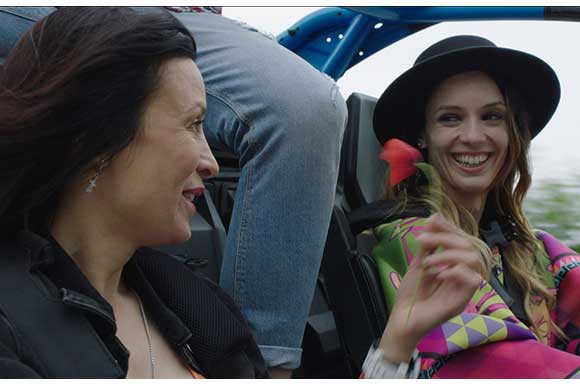 MARKET ANALYSIS 2020
MARKET ANALYSIS 2020
SOFIA: Critical for culture and film worldwide, the COVID-19 pandemic in 2020 was equally difficult for the film industry in Bulgaria.
The first severe restrictions of social and cultural life came after the vote of the Bulgarian Parliament in favour of a state of emergency from 13 March 2020, imposing a lockdown for a month. All culture and entertainment venues including cinemas were obliged to close.
As a result, only days after the official announcement of its 2020 lineup, the Sofia FF had to postpone its 24th edition, which was about to kick off on 12 March 2020 and to be followed by the 17th Sofia Meetings.
The emergency state was extended for another month and lasted till 13 May 2020. After this date smaller cinema halls were authorised to open, but only with a limit of 30% of their capacity. They functioned in this mode until 27 November 2020, when they were closed again.
Theatrical distribution and exhibition proved to be the most affected sectors of the country's film industry. Admissions decreased by 72.13%, and box office by 72.86%.
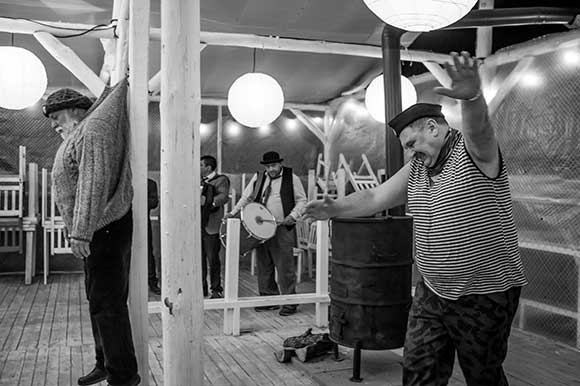 Concerned about its shooting plans in Bulgaria, the Sofia-based Nu Boyana Film Studios prepared and issued a detailed COVID-19 Safety Protocol, taking into account both the safety procedures for a visiting US production and the SAG’s guidelines.
Concerned about its shooting plans in Bulgaria, the Sofia-based Nu Boyana Film Studios prepared and issued a detailed COVID-19 Safety Protocol, taking into account both the safety procedures for a visiting US production and the SAG’s guidelines.
The Ministry of Health approved the Bulgarian Film Industry Safety Guidelines under COVID-19 on 1 June 2020. The national authorities agreed on an exemption to the health and entry protocols for individuals involved in the film industry. Film professionals from countries outside the EU were able to enter Bulgaria for work after testing negative for COVID-19 but without a 14 days quarantine. This made the shooting of Till Death by Australian director Scott Dale (Millennium Media) possible in August 2020. Six other foreign films were shot in the country during the year.
PRODUCTION
A total of 23 feature films were produced in 2020, of which 18 were supported by the Bulgarian National Film Center and three were coproduced by the Bulgarian National Television.
Three feature films were made as majority coproductions and five as minority coproductions. There were six feature film debuts.
A total of 32 short films was made in 2020, of which four were supported by the Bulgarian National Film Center, one by the National Culture Fund, one by the American Foundation for Bulgaria, one by the New Bulgarian University, and two by the Bulgarian National Television.
A total of 14 short films were made through the Nu Boyana Film Studios’ brand for all educational initiatives – FilmForge.
Bulgarian films quickly started to enter production after the lifting of the Emergency state on 14 May 2020, despite the sanitary restrictions. A total of 11 titles, including five debuts, were entirely or partially shot till the end of the year.
In September 2020 Theodore Ushev shot his first feature film φ1.618, produced by Peripeteia, a dark dystopia based on Vladislav Todorov’s novel The Spinning Top, referring to the Golden Ratio.
In August 2020 Victor Bojinov shot his low-budget musical drama The Naked Truth about Zhiguli Band, produced by Concept studio. Almost immediately after that, he also shot his higher 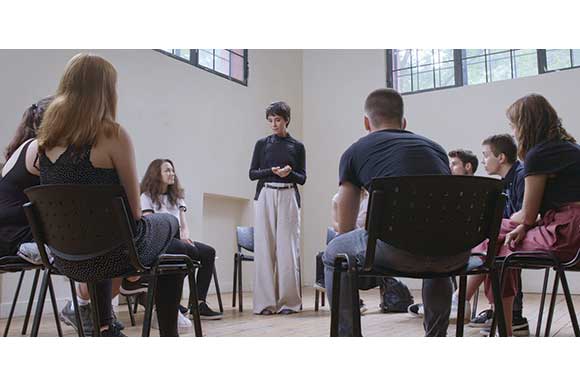 budget ethical drama Chamla, produced by Gala Film.
budget ethical drama Chamla, produced by Gala Film.
Well known for his documentaries The Good Postman (2016) and The Magic Life of V (2019), Tonislav Hristov shot his debut feature The Good Driver as a Finnish/Bulgarian coproduction between Making Movies and Soul Food.
On 27 August 2020 director Martin Makariev wrapped his period film In the Heart of the Machine, an ambitious dissection of the confrontation between ordinary prisoners and totalitarian authorities in 1978, produced by Forward Pictures Entertainment.
By the end of 2020 Magdelena Ilieva also wrapped her debut feature Eternity Package, a black comedy about guilt and forgiveness, coproduced by Bulgaria’s Agitprop and Italy’s Mammut Film.
After his 2019 debut A Picture with Yuki, coproduced by Bulgaria’s Chouchkov Brothers and Japan’s WA Entertainment, Lachezar Avramov shot his second feature Yellow Oleander, a black comedy with a political twist, produced by Premier studio.
By the very end of 2020 Ivailo Penchev started shooting his large audience tragicomedy Uncle Christmas, produced by Cinemaq.
The 38th edition of the Golden Rose National FF, with 19 feature films and 22 short films in two official competitions, was lucky enough to take place in Varna as a physical event from 24 September to 1 October 2020. Two films stood out: Ivailo Hristov’s Fear (Golden Rose and Best Actress for Svetlana Yancheva) and Ivan Vladimirov’s Scenes from the Life of an Actress, produced by Gala Film (Special Jury Award, Best Director and Best Scriptwriter).
In contrast, the 25th edition of the national film festival for documentaries and animated films Golden Rhyton, initially scheduled as a physical event in the city of Plovdiv (27 November - 3 December 2020) had to turn online (4 - 10 December 2020). The decision came shortly after the implementation of stricter COVID-19 sanitary restrictions on 27 November 2020, when all 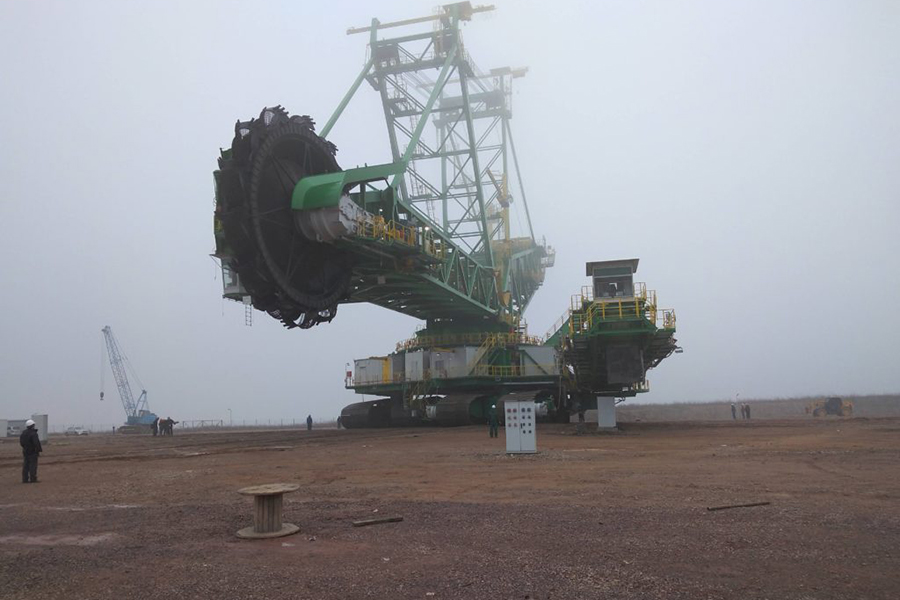 theatres were closed again. Eldora Traykova’s Before the End was awarded Best Documentary and Andrey Koulev’s Santiago won Best Animated Film.
theatres were closed again. Eldora Traykova’s Before the End was awarded Best Documentary and Andrey Koulev’s Santiago won Best Animated Film.
Fourteen foreign films of different scales were partly or entirely shot in Bulgaria in 2020. Italian producer Fiorenza Cella managed to shoot five films, mainly intended for big TV channels, through Free Dolphin International and Sofia-based Free Dolphin Studios.
On the other side, Nu Boyana Film Studios stated they were proud of the result of their nine months’ work, when it was possible to shoot. According to an official announcement, Nu Boyana completed the production of “eight feature films and 16 international commercials for world brands”. Apart from Scott Dale’s Till Death (Millennium Media), the list of the films shot or serviced also includes Daniel Stamm’s The Devils Light (Lionsgate), Samuel Bodin’s Cobweb (Lionsgate), Castille Landon’s After We Fell & After Ever Happy (Voltage) and Martin Campbell’s The Asset (Millennium Media).
The CEO of Nu Boyana Film Studios Yariv Lerner publicly expressed on various occasions his satisfaction with the Bulgarian government. According to him, thanks to the preferential support and the rules introduced inside Nu Boyana, it became possible to launch several international productions and to provide work opportunities in a difficult year.
COVID GOVERNMENT SUPPORT
Unlike other European countries, the emergency financial measures in Bulgaria were not specifically focused on the film sector. The nearly 3,000 people engaged in the film industry under different forms did not get targeted assistance.
Most of the packages were aimed at the general culture sector. The beneficiaries of different aids were both independent artists, and state and municipal culture institutions. The first financial aid of 312 EUR / 610 BGN for three months was granted to freelance artists, but only under the condition that their 2019 monthly income was less than 500 EUR. Around 1,200 of nearly 2,200 independent artists received this type of support.
 Those whose 2019 monthly income was more than 500 EUR were eligible to apply for monthly interest-free loans of up to 750 EUR each, repayable over the next 10 years.
Those whose 2019 monthly income was more than 500 EUR were eligible to apply for monthly interest-free loans of up to 750 EUR each, repayable over the next 10 years.
At the same time, state and municipal performing arts institutes got subsidies covering six months subsequent to the start of the state of emergency.
Since 31 March 2020 legal entities with artistic and creative activities and screening halls throughout the country could apply for state support in order to cover 60% of the monthly wages of their employees, if their jobs were preserved.
Also, the National Fund for Culture, managed by the Ministry of Culture, restructured some of its calls in order to direct more funds to the independent culture sector. Some regulations were updated to allow eligible costs to include an increase of administration costs to 30%.
DISTRIBUTION
According to the NFC, a total of 169 films were theatrically released in 2020. The list includes 63 US films, 72 European films, 29 domestic films and five films from other countries.
Total admissions were 1,337,951, of which 1,024,215 were generated by American films, 143,003 by European films and 135,984 by domestic films.
Although 2020 was particularly difficult for the creative industry and film people in Bulgaria, several directors and actors had impressive achievements on the international stage.
Kamen Kalev’s personal and contemplative February, coproduced between France’s Koro Films and Bulgaria’s Waterfront Film, with Memento Film International as sales agent, became one of the 56 titles in the Cannes 2020 Official Selection.
Ivailo Hristov’s Fear, produced by Pro Film, won the best film award at the 2020 Tallinn Black Nights FF, together with the top prize of the 38th Golden Rose National FF (24 September - 1 October 2020).
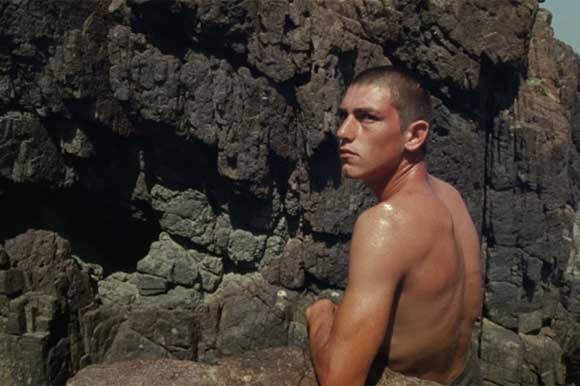 Mina Mileva’s and Vesela Kazakova’s Bulgarian/UK/French debut feature Cat In the Wall, a coproduction between Activist 38, Glasshead and Ici et Là Productions, continued its international success from 2019 and was included in the Feature Film Selection of the 2020 European Film Awards.
Mina Mileva’s and Vesela Kazakova’s Bulgarian/UK/French debut feature Cat In the Wall, a coproduction between Activist 38, Glasshead and Ici et Là Productions, continued its international success from 2019 and was included in the Feature Film Selection of the 2020 European Film Awards.
The 27 minute animated film The Physics of Sorrow by Bulgarian-born Canadian animator Theodore Ushev, based on Georgi Gospodinov’s novel under the same name, won over 40 international awards including the 2020 Annecy IAFF Crystal Award and the 2020 Clermont-Ferrand ISFF Grand Prix.
Due to her off-beat performance as Tutar Sagdiyev in Sacha Cohen’s 2020 extravagant comedy Borat Subsequent Moviefilm (Four by Two Films/Oak Spring Productions), Bulgarian actress Maria Bakalova made an unexpected but cute breakthrough in the USA and elsewhere.
In turn, Martina Apostolova, who impressed the international audience with her lead performance in Nadejda Koseva’s debut Irina, produced by Art Fest, became Bulgaria’s 2020 Berlinale Shooting star.
Julian Vergov, the lead in Pavel G. Vesnakov’s Bulgarian/German debut feature German Lessons, produced by Moviemento/Heimathafen Film & Media, won best actor at the 2020 Cairo IFF.
Sofia-based Doli Media Studio carried out the full restoration of the three parts epic Measure for Measure (1981) by Georgi Djulgerov, assuring the entire financial and technical support.
Only days after the official announcement of its 2020 lineup, the Sofia FF had to postpone its 24th edition, which was about to kick off on 12 March 2020 and to be followed by the 17th Sofia Meetings. Stefan Kitanov, the director of the festival, defined the situation as „dramatic“ and the pressure for urgent decisions as a “matter of survival.”
Getting over the unexpected shock, the Sofia FF team mobilised its energy and resized its content in two modules: the Sofia FF Summer, held 25 June - 10 July 2020 with 12 films in competition and 80 films screened online and at open-air venues, and the Sofia FF Autumn, held 24 September - 15 October 2020 with over 90 films and 11 premieres of Bulgarian feature 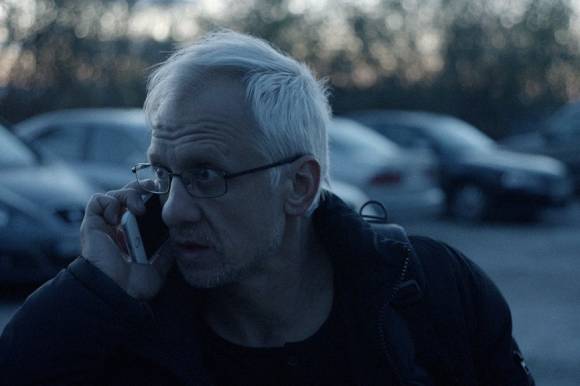 films and documentaries shown on big screens and online. The Sofia Meetings industry event was held online 3 - 8 July 2020.
films and documentaries shown on big screens and online. The Sofia Meetings industry event was held online 3 - 8 July 2020.
VOD PLATFORMS AND ONLINE DISTRIBUTION
In the absence of normal theatrical distribution almost all year round, online platforms gained energy.
Neterra TV+ turned out to be one of the most prominent platforms offering new Bulgarian films to the audience. Established in 2004 by the telecommunications company Neterra, it has since offered services for the distribution of legal TV and radio content, films and music, live broadcasting of live events.
Neterra.TV is the first television platform for Bulgarians living abroad and Neterra TV+ has a constantly updated catalogue of Bulgarian films, highly requested by Bulgarians living abroad. Foreign films are mostly watched by people living in Bulgaria.
The first festival that Neterra TV+ hosted online was the Master of Art Documentary Film Festival (9 - 30 April 2020). Neterra’ s marketing manager Maya Kalcheva stated that “In the current situation of physical and social distance, Neterra decided to lend a hand to the Master of Art Film Festival and make, for the first time in Bulgaria, a 100% online version of a film event”.
Neterra TV+ also hosted the otherwise extremely popular with theatrical audience Book&Movie IFF CineLibri (18 October –11 November 2020).
Another online platform trying to strongly position itself on the market was gledam.bg. Available for EU territories, the platform has demonstrated preferences for classical Bulgarian films and tries to keep up with at least one premiere a month. Online premieres of new Bulgarian films are also a priority.
One of the nicest surprises of 2020 was the Sofia DocuMental International Documentary FF focused on human rights, which was initiated and is organised by the Balkan Documentary Center, with Martichka Bozhilova as director. Originally planned as a physical event, the festival was also forced to go online. The selection of films was reduced to 15 titles, available from 10 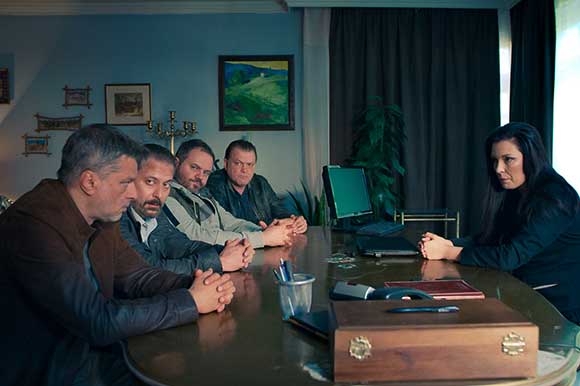 to 18 December 2020 on stream.documental.bg. On the other hand, the forced online format proved useful to the quality of discussions on various important social issues, with the participation of prominent Bulgarian and foreign filmmakers and human rights experts.
to 18 December 2020 on stream.documental.bg. On the other hand, the forced online format proved useful to the quality of discussions on various important social issues, with the participation of prominent Bulgarian and foreign filmmakers and human rights experts.
EXHIBITION AND BOX OFFICE
In 2020 total admissions were 1,337,951 and total box office was 6,485,835 EUR, while in 2019 total admissions were 4,801,045 and total box office was 23,895,950 EUR.
US films had 5,074,515 EUR gross, European titles had 651,014 EUR gross, and domestic films had 596,640 EUR gross.
In 2020 admissions decreased by 72.13%, while box office decreased by 72.86%.
During the first two months of 2020 Martin Makariev’s Wildlings (Spirit Production House), which premiered in 2019, had 42,478 admissions and 192,435 EUR gross.
Andrey Andonov’s Yatagan (A Plus Films), which premiered on 21 February 2020, did not have enough time to attract more than 34,158 admissions and 153,160 EUR gross.
Viktor Chouchkov’s 18% Grey (Chouchkov Brothers) premiered on 21 January 2020 and had 19,983 admissions and 86,790 EUR gross, while Yana Titova’s A Dose of Happiness (No Blink Studio / bTV Studios), also a premiere film from the end of 2019, had 9,374 admissions and 41,606 EUR gross in 2020.
Radoslav Iliev’s entertaining Action (Incomes Project), which premiered on 29 January 2020, ranked 5th with 5,127 admissions and 20,479 EUR gross.
Niki Iliev’s Reunion (Silver Light Pictures), also known by the audience from 2019, had 4,729 admissions and 17,245 EUR gross in 2020.
Bogomil Kalinov’s debut feature Ashes Over Sun (Invictus) premiered on 29 October 2020 and had 4,328 admissions and 19,321 EUR gross, while Georgi Kostov’s The Rest Is 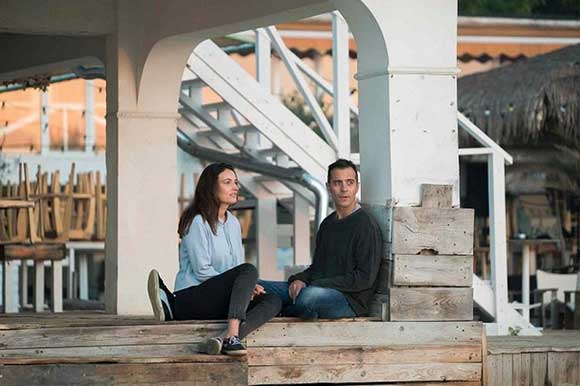 Ashes (Korund-X) premiered on 5 March 2020 and had 3,629 admissions and 18,788 EUR gross.
Ashes (Korund-X) premiered on 5 March 2020 and had 3,629 admissions and 18,788 EUR gross.
Ivaylo Spasov’s privately financed Relationology (Spasov Brothers), which premiered on 14 February 2020, had 3,224 admissions and 14,847 EUR gross.
Kristina Grozeva’s and Petar Valchanov’s The Father (Abraxas Film / Graal Films), scheduled to start commercial release on 4 April 2020, had to wait until 24 July 2020, when it attracted 1,914 admissions and collected 7,187 EUR gross.
A total of 65 cinemas were partially functioning during the year 2020. Six new digital cinemas started working, including two open-air and one drive-in cinema.
GRANTS AND NEW LEGISLATION
Public funding for film in 2020 remained the same as in 2019, amounting to 7,515,991 EUR / 14.7 m BGN. A total of 85% of the sum was planned to be allocated to all types of film production, including minority coproductions. The rest of the money was intended to be allocated to local theatrical distribution of Bulgarian films, including minority coproductions (5%), festivals (5%) and exhibition of films (5%).
By the end of 2020 the Council of Ministers started a procedure on amending the country’s Film Industry Act. The most important change consisted in the introduction of an up to 25% cash rebate for foreign productions shooting in Bulgaria. The draft, aimed at increasing the number of supported Bulgarian films, passed its first of two Parliamentary readings on 4 December 2020, but it is still under discussion.
TV
Two big transactions on Bulgaria’s audiovisual market were finalised in 2020. The first one was the sale of the Bulgarian television group bTV, composed of bTV, bTV Cinema, bTV Comedy, bTV Action, bTV Lady, and Ring bTV, by the Central European Media Enterprises (CME) group to the Czech businessman Petr Kellner’s PPF. The deal was approved by the European Commission, which concluded that “the transaction would raise no competition concerns in the European Economic Area”.
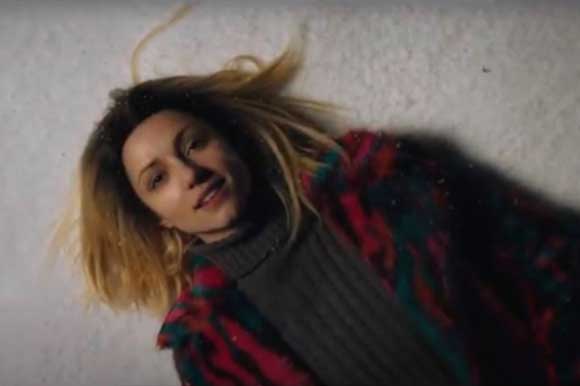 The second deal was the transaction of Nova Broadcast Group signed at the end of December 2020. United Group, already present on the Bulgarian market as the owner of the country’s telecom operator Vivacom, bought Nova Group with its TV channels including the national Nova TV, and four radio stations. Having also acquired a number of print and online newspapers, the Telegraph and the Monitor dailies among others, United Group became Bulgaria’s largest multiplatform media company.
The second deal was the transaction of Nova Broadcast Group signed at the end of December 2020. United Group, already present on the Bulgarian market as the owner of the country’s telecom operator Vivacom, bought Nova Group with its TV channels including the national Nova TV, and four radio stations. Having also acquired a number of print and online newspapers, the Telegraph and the Monitor dailies among others, United Group became Bulgaria’s largest multiplatform media company.
On 28 October 2020 the Bulgarian National Television announced a call for applications for different types of projects, including TV series, TV films and TV adaptations of classical and contemporary literary works. The amount provided for the new audiovisual products to come is about 2 m EUR.
In September 2020 Nova TV commenced broadcasting its new criminal series Brothers, tracing the family conflicts between two men with diametrically opposed professions, interests and moral values.
In the autumn of 2020 director Ilian Djevelekov shot his six part series The Portal, backed by the BNT, with Miramar as executive producer. Written by Matey Konstantinov, Ilian Djevelekov and Nelly Dimitrova, the series describes the unexpected trips of a man through time between 1979 and 2019. Over 80 actors and extras took part in the shootings, recreating different periods and locations from Sofia’s past.
CONTACTS:
BULGARIAN NATIONAL FILM CENTER
Executive Director: Jana Karaivanova
2 A, Dondukov Blvd., 7th floor
1000 Sofia, Bulgaria
Phone: + 359 2 9150 811
This email address is being protected from spambots. You need JavaScript enabled to view it.
www.nfc.bg
UNION OF BULGARIAN FILMMAKERS
Chairman: Milko Lazarov
67, Dondukov Blvd.
1504 Sofia, Bulgaria
Phone: + 359 2 946 10 68
This email address is being protected from spambots. You need JavaScript enabled to view it.
www.filmmakersbg.org
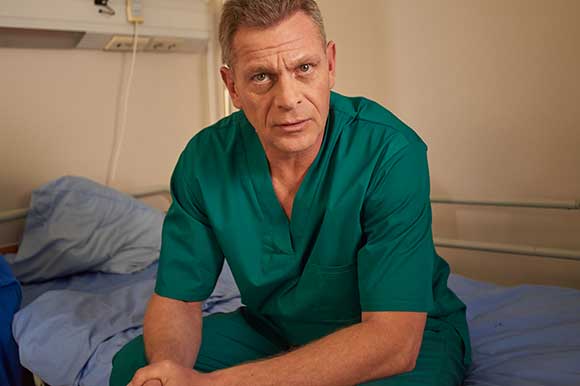 MINISTRY OF CULTURE
MINISTRY OF CULTURE
Minister of Culture: Boil Banov
17, Stamboliiski Blvd.
1040 Sofia, Bulgaria
Phone: + 359 2 940 09 00 (switchboard)
This email address is being protected from spambots. You need JavaScript enabled to view it.
www.mc.government.bg
BULGARIAN NATIONAL FILM ARCHIVE
Director: Antonia Kovacheva
36, Gurko Str.
1000 Sofia, Bulgaria
Phone: + 359 2 987 02 96
This email address is being protected from spambots. You need JavaScript enabled to view it.
www.bnf.bg
BULGARIAN NATIONAL TELEVISION
General Director: Emil Koshlukov
29, San Stefano Str.
1504 Sofia, Bulgaria
Phone: + 359 2 814 22 14
Phone.: + 359 2 944 49 99 (switchboard)
www.bnt.bg
Report by Pavlina Jeleva (2021)
Source: Bulgarian National Film Center
Cyprus
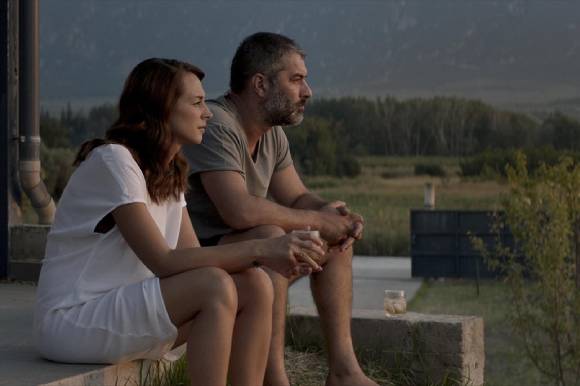
MARKET ANALYSIS 2020
In 2020, the Cyprus Ministry of Education, Culture, Sport and Youth (MECSY) made great efforts to maintain and support the country’s cinematic activities and industry facing the severe impediments caused by the Coronavirus pandemic to film production, film distribution, film education and film festivals.
PRODUCTION
The pandemic and the strict measures imposed against COVID-19 negatively affected the course of the Cypriot productions that would have started shooting or been completed during 2020. The shooting of the feature film The Valley of Roses by Christoforos Roditis produced by Transvideo Ltd was interrupted in April 2020 and continued in July 2020 after the lifting of the restrictive measures of the first lockdown. The shooting of the feature film Detached House by Ioakeim Mylonas, produced by Yiannis Economides Films Ltd in coproduction with Argonauts Films (Greece), was postponed for May 2021, while the shooting of the feature film Embryo, Larva, Butterfly by Kyros Papavassiliou, produced by AMP Filmworks Ltd in coproduction with Graal S.A. from Greece, was postponed for March/April 2021. Short and feature films in final stages of postproduction were delayed due to the suspension of work at video and audio labs.
The feature film Ballad for a Pierced Heard / Balanda tis tripias kardias by Yiannis Economides, a minority coproduction between Cyprus, Greece, Germany and France, as well as the feature film Senior Citizen by Marinos Kartikkis (Independent Production Scheme – Sekin) were completed during 2020.
The following short films were also finished in 2020: Betrayal by Katiana Zachariou, The Lighthouse / O Faros by Costas Chrysanthou, Bleeding by Anna Fotiadou, The Hunt by Sholeh Zahraei and Kamil Saldun, Beautiful Day by Christos Nikolaos, You’ve Asked Me / Zitate na sas po by Paris Prokopiou, as well as the short animated film The Parrot Lady by Michalis Kalopedis.
The following short films were either in the shooting or postproduction stage in 2020 through the beginning of February 2021: Little Hunter by Dinos Grigoriou, TAXI by Konstantinos Nikiforou, A Summer Place by Alexandra Mattheou, ΙD by Paris El Sait, and the animated film Lychnafis by Georges Tsangaris.
Three documentaries were in progress in 2020: Miss Asia Cyprus by Kaiti Papadima, The Vessel by Sofia Anastasiou and Bubble a Squeak by Orestis Lambrou.
Three feature films were in final postproduction in February 2021 and are expected to start their festival tour in 2021: .DOG by Yianna Americanou, The Man with the Answers by Stelios Kammitsis, Patchwork by Petros Charalambous and The Valley of Roses by Christoforos Roditis, produced by Cypriot Transvideo in coproduction with Cypriot Roll Out Services and Cypriot Film Blades.
Three feature films are scheduled to start shooting in 2021: Monokatoikia directed by Ioakim Milonas and produced by Cypriot Yannis Economides Films in coproduction with Greek Argonauts, IMAN directed by Kyriakos Tofarides and Korina Avramidou, and produced by Cypriot Α. Β. Seahorse Film Productions, as well as Embryo, Larva, Butterfly by Kyros Papavassiliou, produced AMP Filmworks Ltd in coproduction with Graal S.A. from Greece.
Six feature films were in development in February 2020: Asulum Seakers by Michael Hapeshis, produced by Acanthus Productions, Iris by Myrsini Aristeidou, The Cliff by Stelana Kliris, produced by Meraki Films, Africa Star by Adonis Floridis, produced by AMP Filmworks, Common Good / Kino Kalo by Spyros Charalambous, produced by AMP Filmworks, and the documentary O Iliakos mas… by Panikos Chrysanthou, produced by Art Images
All the above-mentioned short films where financially supported by the Cyprus Ministry of Education, Culture, Sport and Youth through its Cinema Advisory Committee.
COVID-19 GOVERNMENT SUPPORT
In order to support the film industry which, together with the whole artistic field, has faced the effects of the Coronavirus pandemic, the Minister of Education, Culture, Sport and Youth announced a series of support measures for producers and film directors. The measures concerned:
- An invitation to submit proposals of Digital Audiovisual Works of COVID-19 Films with a duration from one to three minutes, on the subject of life in confinement due to the pandemic. From 84 films submitted, 50 were selected and their directors received 1,000 EUR each. The films were posted online on YouTube and were also broadcast on the public televion CyBC.
- Following the prolonged closure of cinemas, theatres whose titles held 60% of the screenings of Cypriot and European films received 60% of their average losses or an amount of 1,500 EUR per month (whichever was in their best interest), for March-June 2020.
- All contracts / agreements signed with the Ministry were extended to six months for short films and 12 months for feature films.
- Film productions halted by the pandemic received extra financial support according to their losses and needs for restarting shooting.
The Cyprus film incentive scheme run by Invest Cyprus – CIPA (Cyprus Investment Promotion Agency) with an annual budget of 25 m EUR continued during 2020 its efforts to attract foreign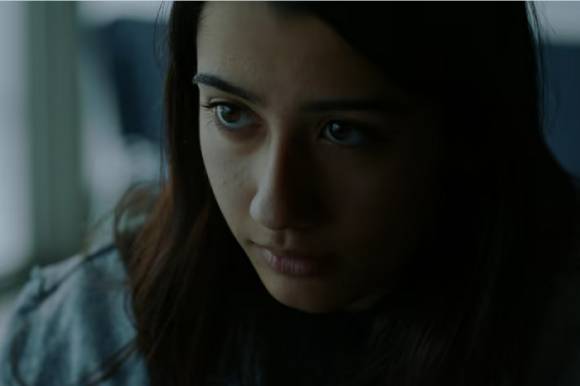 productions aiming to shoot in Cyprus. The scheme provides Cypriot and foreign producers cash rebates and/or tax credits of up to 35% on qualifying production expenditures and it also provides tax allowances of 20% for investment in infrastructure and equipment on the Island.
productions aiming to shoot in Cyprus. The scheme provides Cypriot and foreign producers cash rebates and/or tax credits of up to 35% on qualifying production expenditures and it also provides tax allowances of 20% for investment in infrastructure and equipment on the Island.
Many Hollywood, Bollywood and European producers expressed a vivid interest in filming in Cyprus. Nevertheless, the pre-certified film production The Man of War, which was due to start shooting in 2020, was postponed for 2021 due to the pandemic.
DISTRIBUTION
Due to the pandemic, many festivals were either postponed or held online, thus the low presence of Cypriot films in these festivals. Only two Cypriot titles circulated in 2020: the animated film of Michalis Kalopedis The Parrot Lady, a coproduction of Zedem Media and the Ministry of Education, Culture, Sport & Youth (Cyprus Cinema Consultative Committee/CyCC), and the feature film Senior Citizen by Marinos Kartikkis (Independent Producers Programme produced by Seahorse Productions). The Parrot Lady was selected for over 28 international festivals, including: Drama International Short FF (Greece), Raindance FF (England), Vancouver IFF, Shorts Mexico, San Francisco Independent FF, Rome Independent FF, AniMate Australia Animation FF, TiSFF, Thessaloniki International Short FF. It won the 1st Prize in the Humanitarian category at the Los Angeles Animation Film Festival, as well as an Honourable Mention at the Animasyros International Animation FF (Greece). Senior Citizen participated in the 1st Lima Alterna IFF of China, the 61st Thessaloniki IFF, the 14th Lublin FF, the 6th Cine de Bayamón IFF among others, and received Best Feature Film and the September Award at the 3rd Rome Prisma Independent Film Awards, Best Director at the 6th Bangkok Thai IFF, Best Film and 2nd best prize at the 33rd Panorama of European Cinema, Athens, and Best Feature Film in the Spiritual Film Section at the 19th Dhaka IFF.
To promote Cyprus as a filming destination, as well as to promote Cypriot productions and coproductions, the Cultural Services of the Ministry of Education, Culture, Sport and Youth in Cyprus held a booth at the Drama International Short FF (Greece). The pavilions at the Thessaloniki, Cannes and Berlin film festivals, and also at the Clermont-Ferrand International Short FF and Annecy International Animated FF were either replaced by an online presence or postponed for 2021.
Due to the pandemic, the Cyprus Film Days 2020 – 18th International Film Festival, organised by the Cultural Services of the the Cyprus Ministry of Education, Culture, Sport and Youth and the Rialto Theatre, which would have taken place in April 2020, was canceled. Despite the cancellation, the 1st edition of the Dot.on.the.map Market was a real success and it will be continued in the years to come.
For the first time, Cyprus participated in the Young Audience Award, organised by the European Film Academy.
The 10th Cyprus International Short Film Festival (ISFFC), the main international competition for short films in Cyprus, took place at the Rialto Theatre from 10 to 16 October 2020. The programme included 49 films in the International Competition Section, 11 films in the National Competition Section, as well as seven parallel programmes.
Other festivals that took place in Cyprus in 2020 were: Drama Festival Travels to Cyprus, the 12th Short Matters! - Cyprus, Images & Views of Alternative Cinema Festival, Summer Screening Marathon 2020, the 15th Limassol International Documentary Festival, the 19th Aspects of the World International Outdoor Animation Festival, the Cyprus Archaeological, Ethnographic and Historical Documentary Festival.
EXHIBITION AND BOX OFFICE
The main exhibitor in Cyprus is K Cineplex, with two cinemas in Nicosia, one in Larnaca, one in Limassol and one in Paphos.
There is also the Rio Cinema in Limassol and Nicosia, and also the Pantheon cinema in Nicosia.
Other small cinemas in the countryside screen various foreign and Cypriot films.
In the main towns there are also various associations that function more like film clubs, generally showing European films, such as the Friends of Cinema Society in Nicosia, Limassol Cinema Society and Larnaca Cinema Society.
In 2020 all the above-mentioned cinema theatres were either functioning with 50% of their audience or were completely shut down due to the pandemic security measures. Governmental support was put in place to comfort losses.
Admissions decreased from 842,038 in 2019 to 173,873 in 2020, while box office decreased from 6,761,624 EUR in 2019 to 1,387,319 EUR in 2020, according to the Cyprus Ministry of Education, Culture, Sport and Youth.
The distribution company Feelgood Tanweer- D.J. had the best results, with 67,989 admissions, 538,320 EUR gross and 39.10% market share, followed by Four Star Films with 42,929 admissions, 333,068 EUR gross and 24.69% market share, and Odeon Cyprus with 37,922 admissions, 307,358 EUR gross and 21.81 % market share.
The 2020 chart is topped by Jumanji: The Next Level with 24,107 admissions and 192,265 EUR gross, followed by Bad Boys for Life with 18,391 admissions and 155,275 EUR gross, Eftyxia with 17,646 admissions and 147,345 EUR gross, Sonic with 9348 admissions and 66,826 EUR gross, Dolittle with 9,147 admissions and 65,599 EUR gross, 1917 with 8,178 admissions and 67,784 EUR gross, Frozen II with 7,500 admissions and 51,092 EUR gross, Birds of Prey with 7,461 admissions and 64,490 EUR gross, After We Collided with 6,571 admissions and 59,168 EUR gross, and Spies in Disguise with 4,878 admissions and 33,432
GRANTS AND NEW LEGISLATION
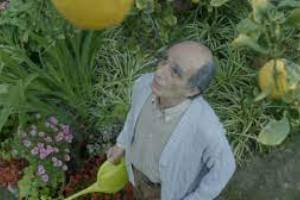 Due to the special circumstances of the pandemic, but also to the limited annual budget for film production, the Cultural Services of the Ministry of Education, Culture, Sport and Youth did not proceed with the announcement of a Call for the submission of New Cinematographic Proposals in 2020.
Due to the special circumstances of the pandemic, but also to the limited annual budget for film production, the Cultural Services of the Ministry of Education, Culture, Sport and Youth did not proceed with the announcement of a Call for the submission of New Cinematographic Proposals in 2020.
The South Eastern European Cinema Network (SEE) launched a contest for short fiction films in 2020. Exclusively national productions of SEE CINEMA member-states (Cyprus, Greece, Serbia, Albania, the Republic of North Macedonia, Montenegro, Kosovo, Romania and Bulgaria) applied. The amount of funding rose up to 8,000-10,000 EUR per project.
TV
There are more than ten studios located in Cyprus and specialised in TV production. Local TV channels usually produce original comic and drama series, and also local sketches.
The local TV channels are: Cyprus Broadcasting Corporation (CyBC 1,2, HD and Sat), Sigma TV, Omega TV, Ant1, Plus TV, Capital and Alpha TV.
There are no local channels broadcasting only films.
CONTACTS:
REPUBLIC OF CYPRUS – MINISTRY OF EDUCATION, CULTURE, SPORT AND YOUTH
Cultural Services
27 Ifigenias Street
2007 Strovolos – Nicosia, Cyprus
Phone: +357 22 809811/809812
Fax: +357 22 809 873
http://filmingincyprus.gov.cy/
http://www.moec.gov.cy/en/
Report by Antigoni Tasiou (2020)
Sources: the Ministry of Education, Culture, Sport and Youth



















